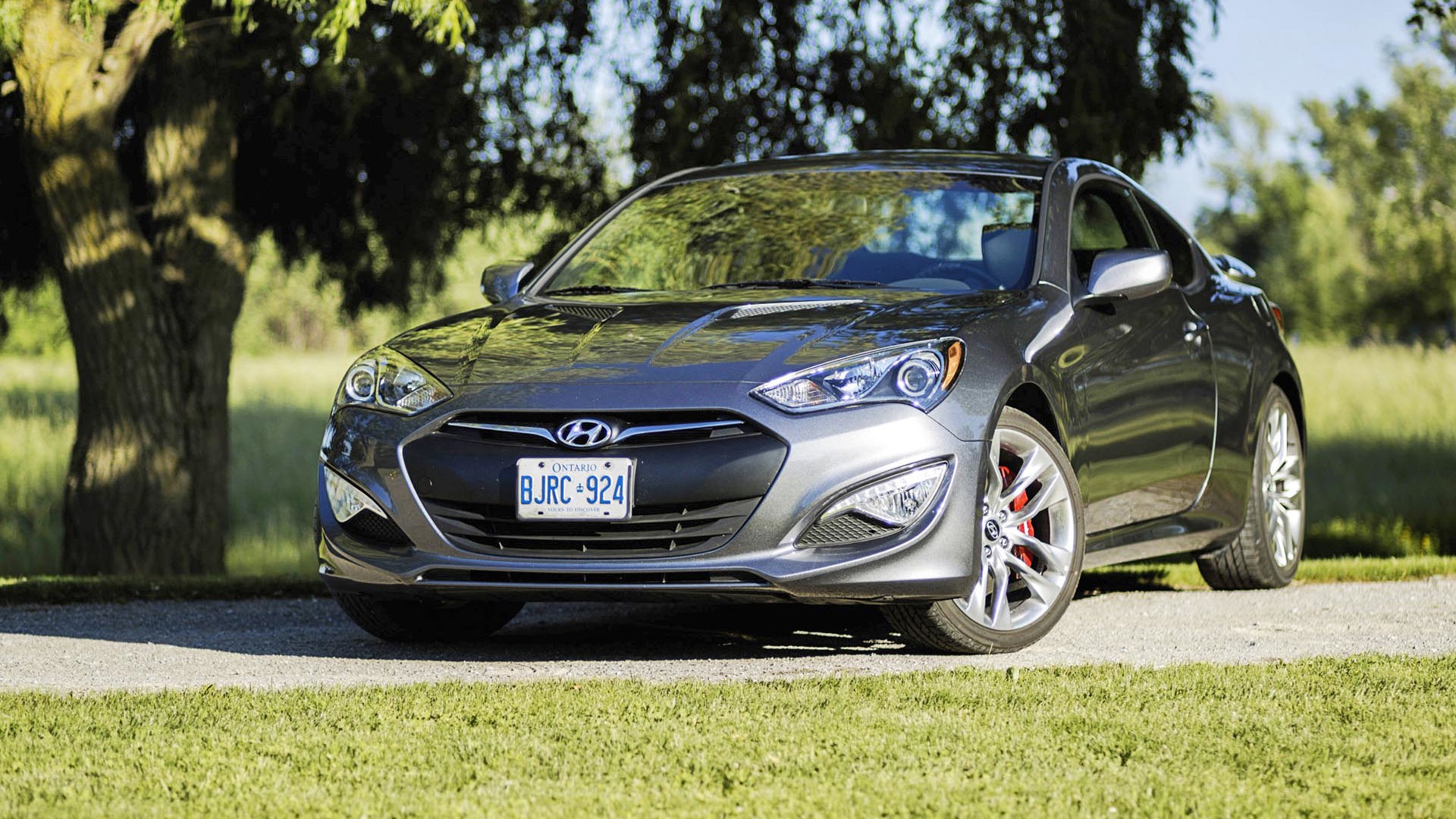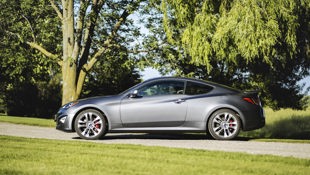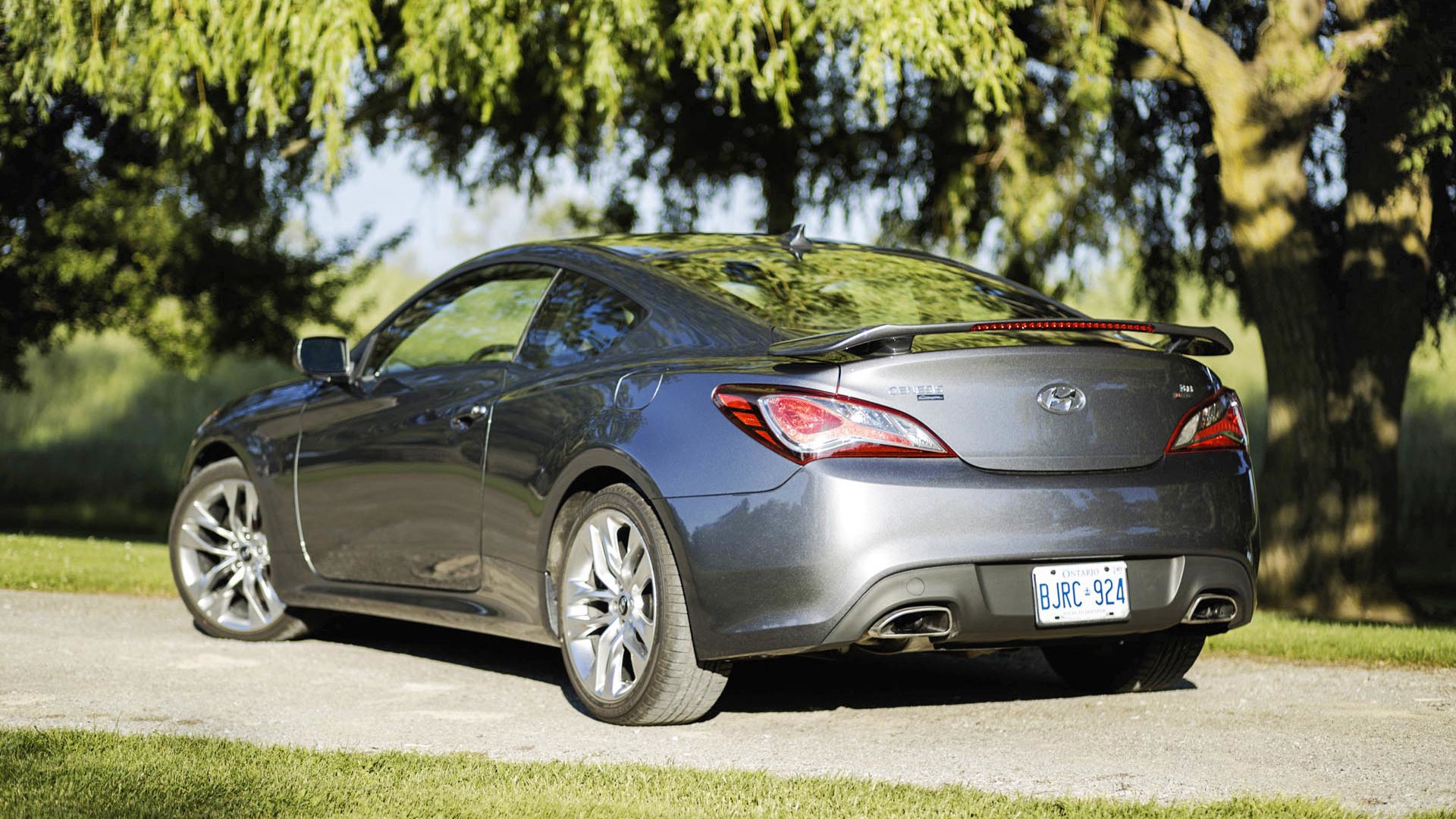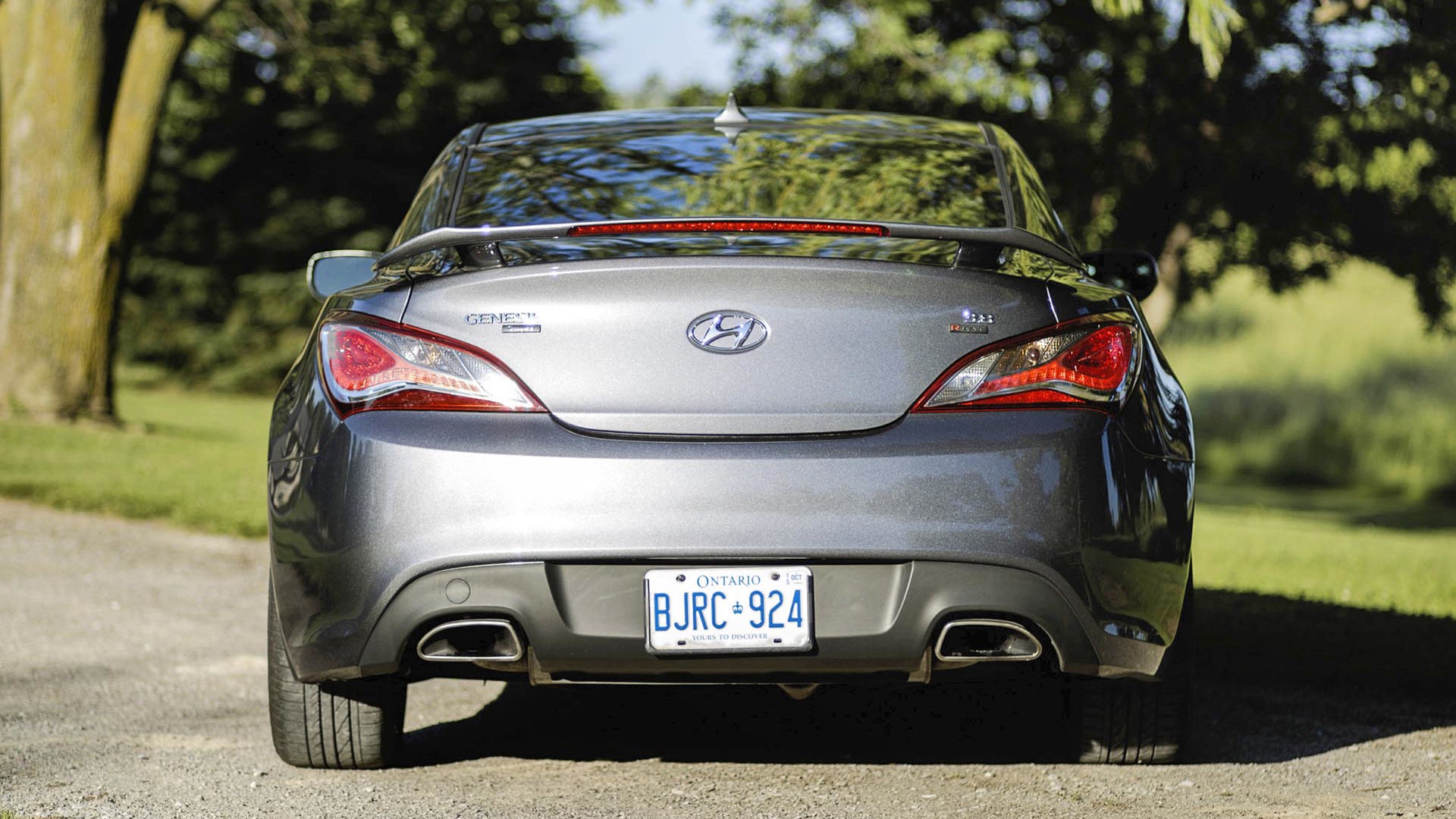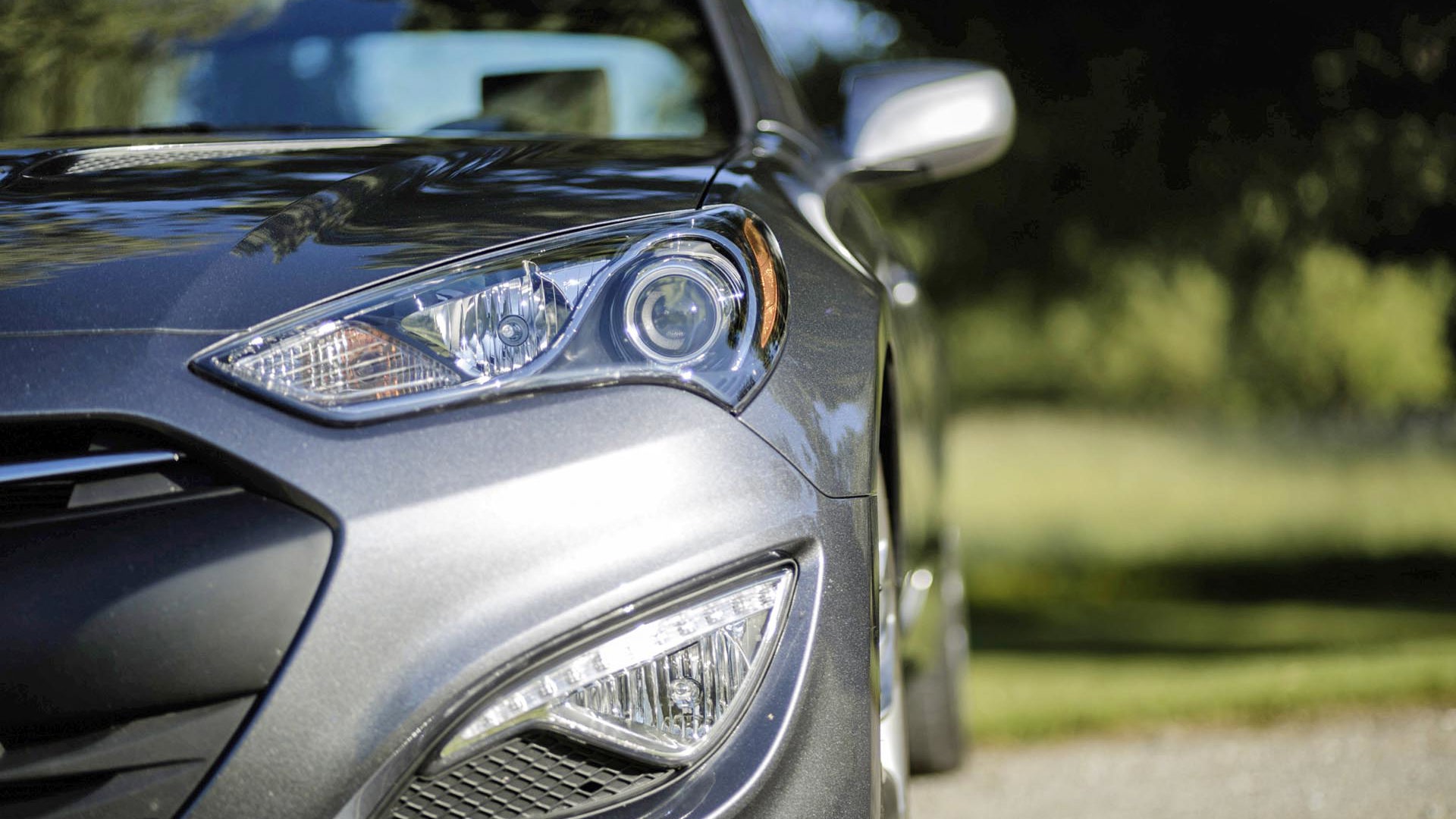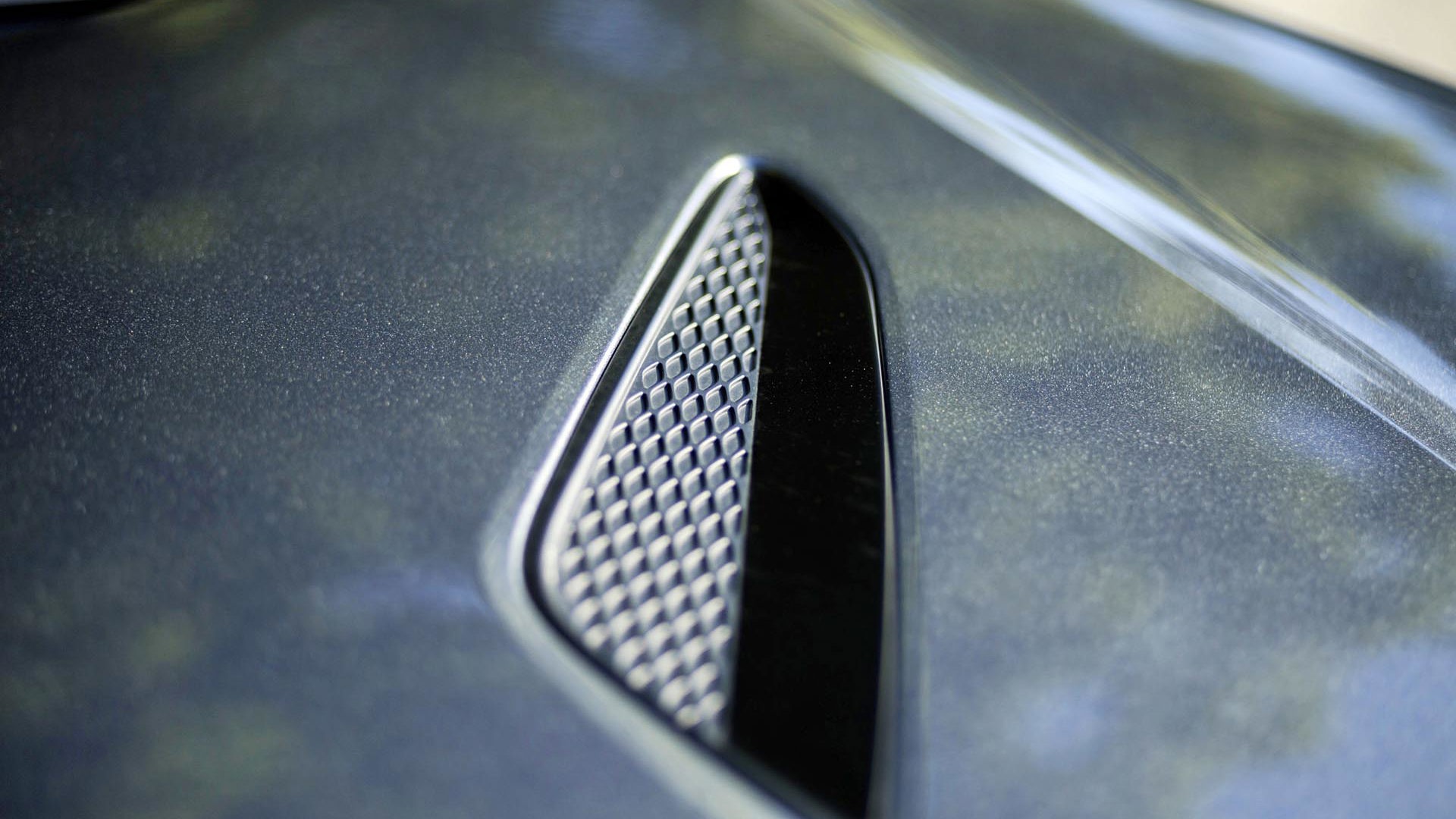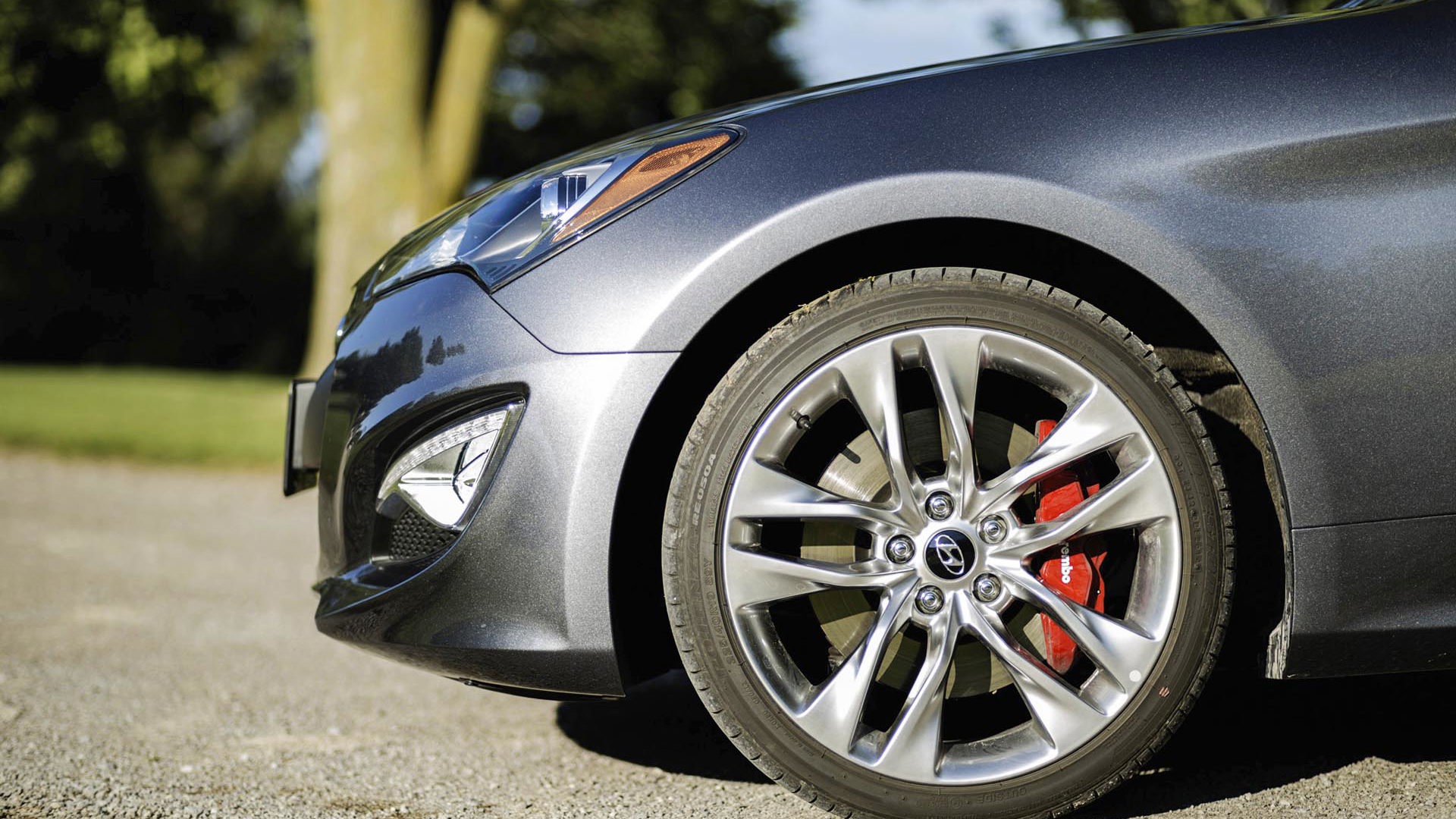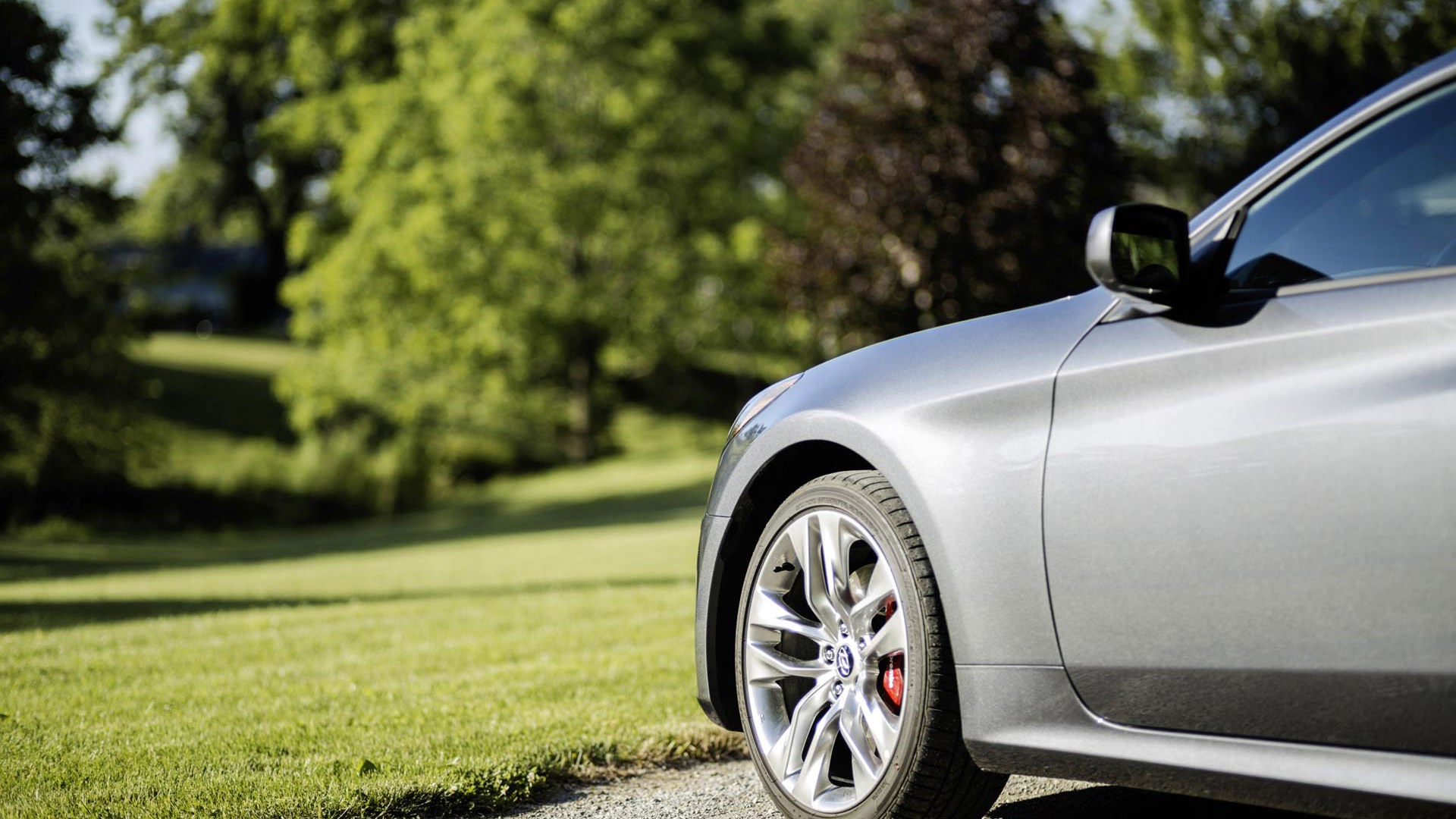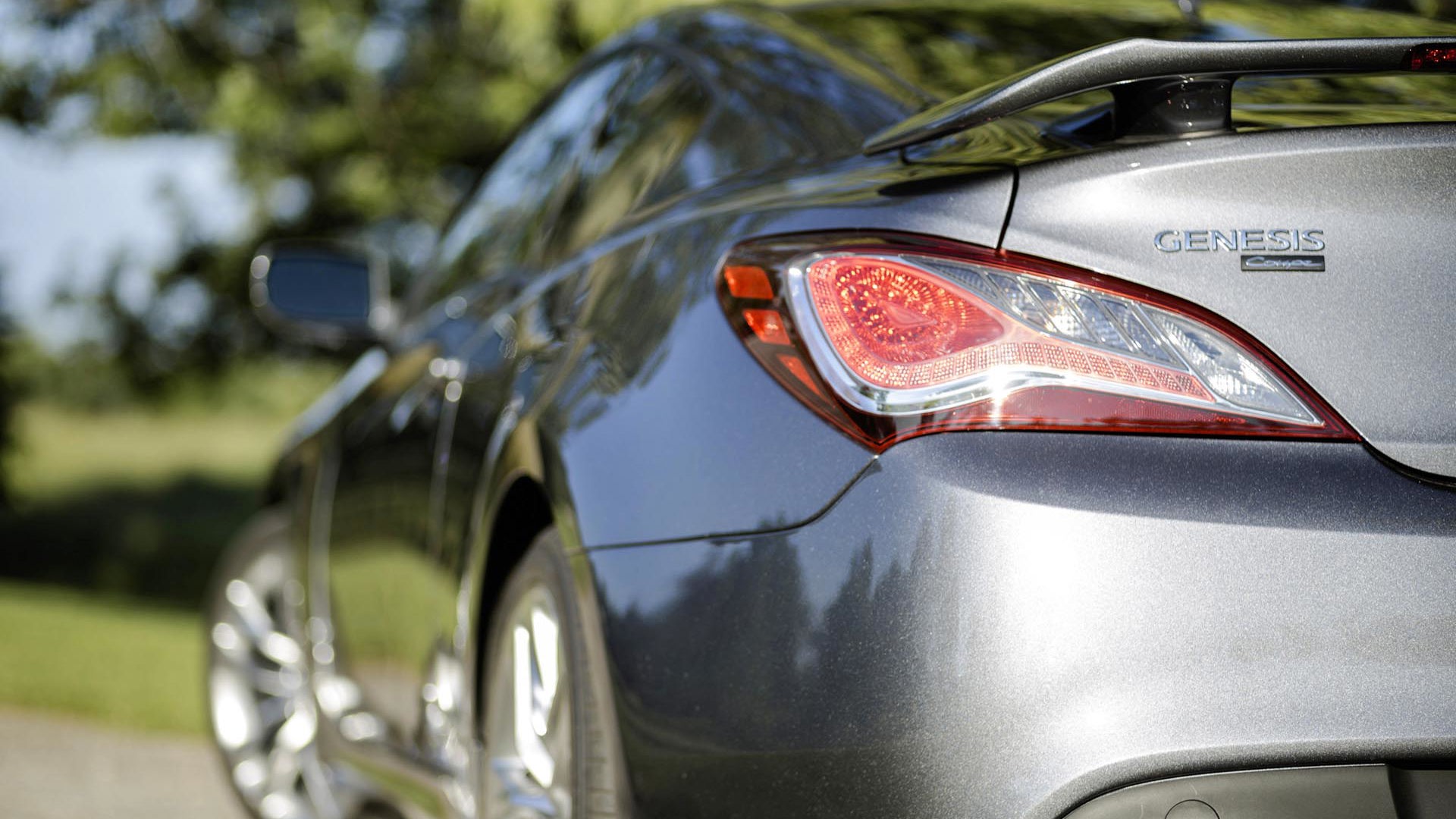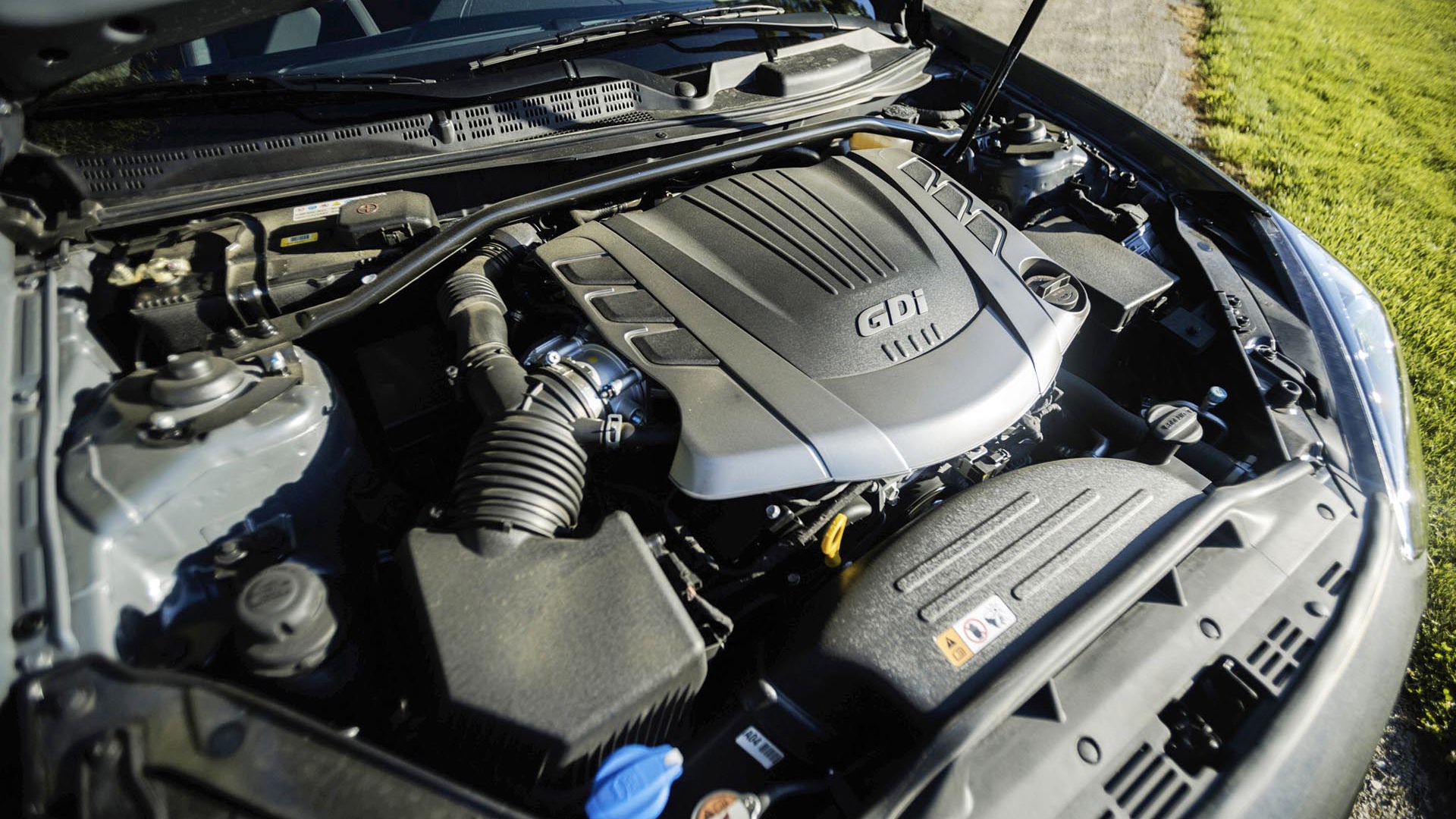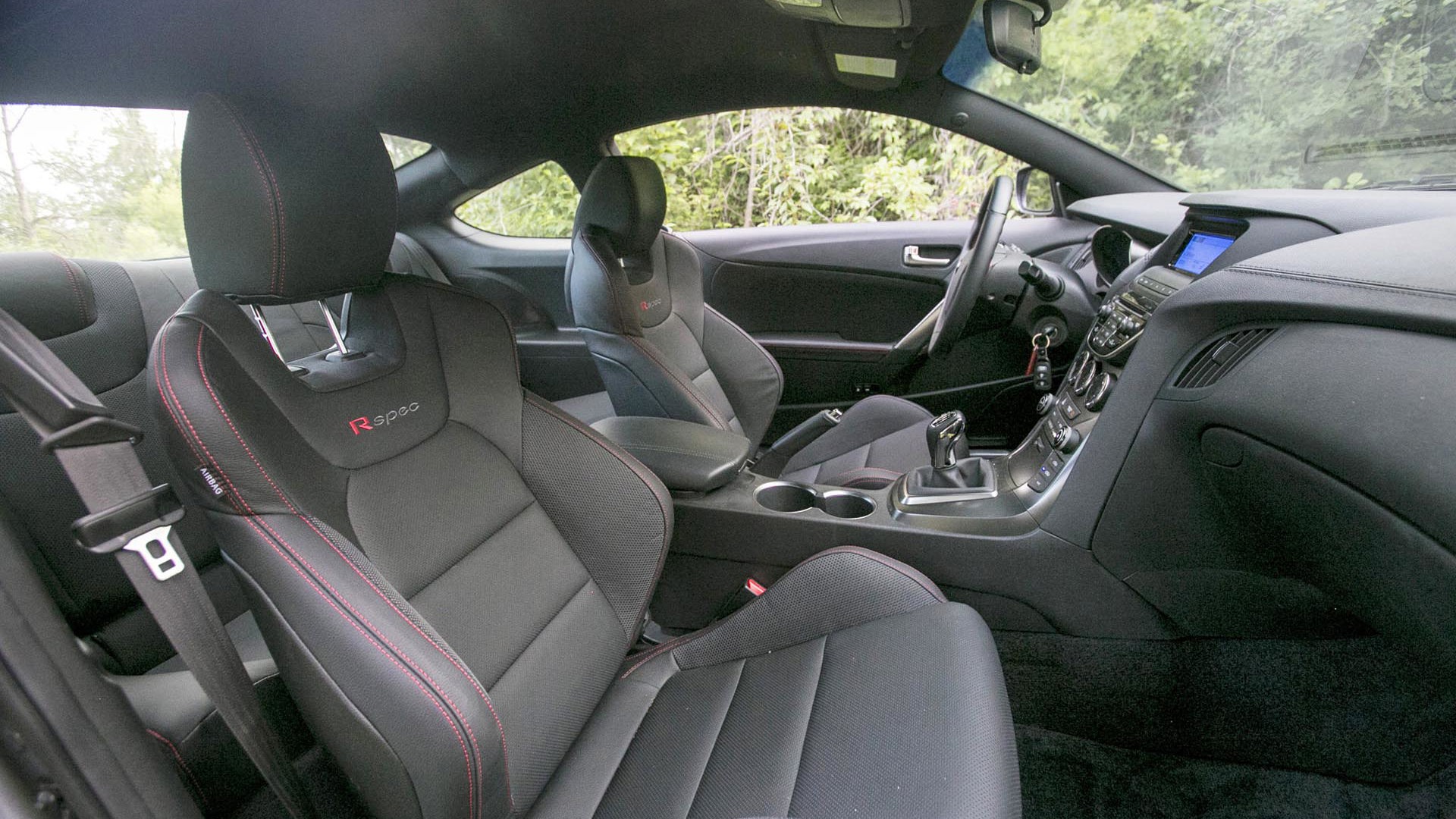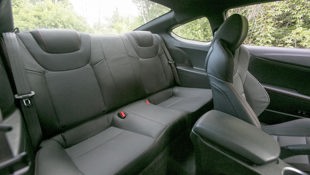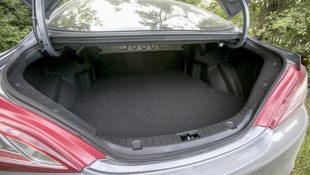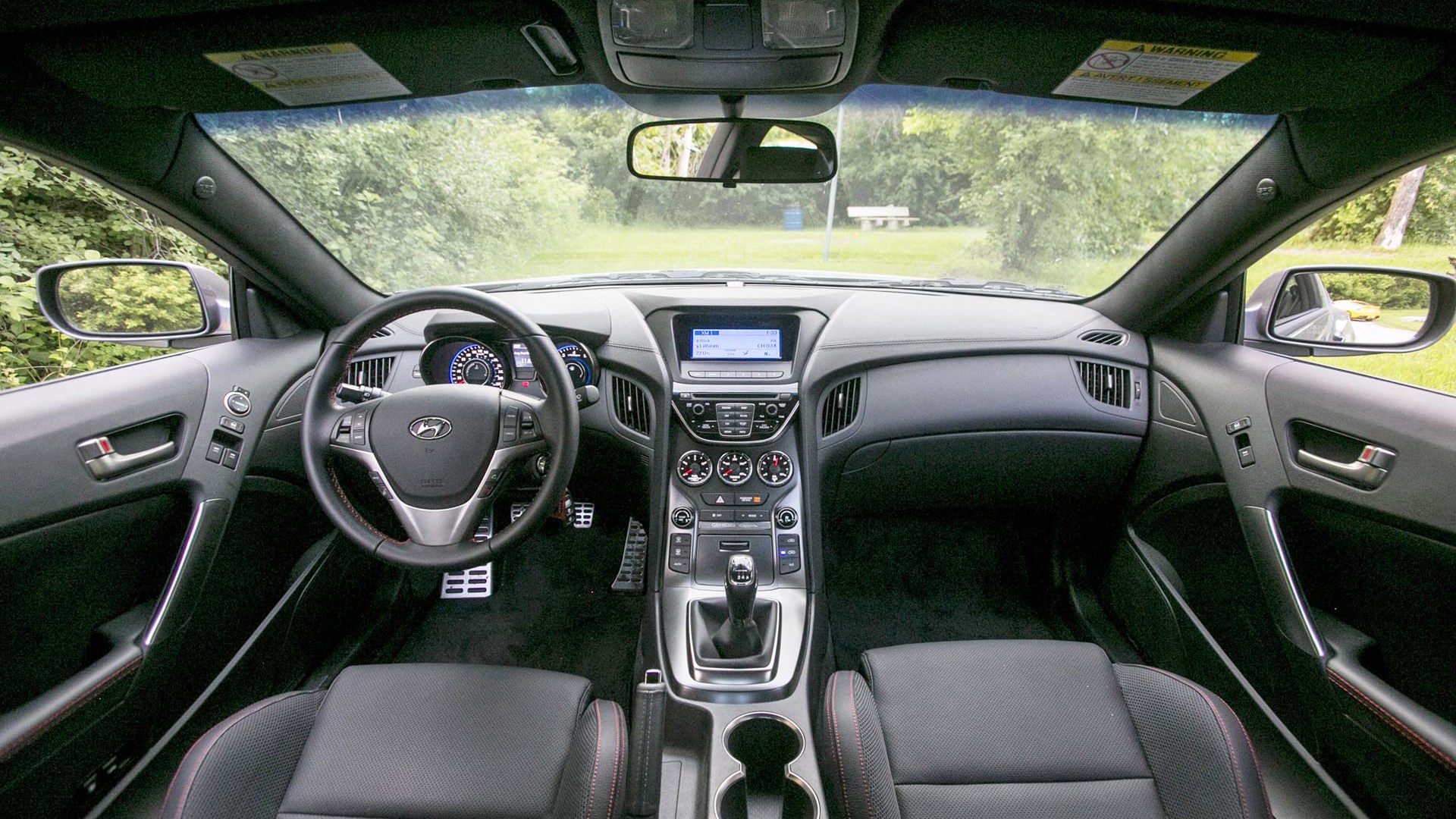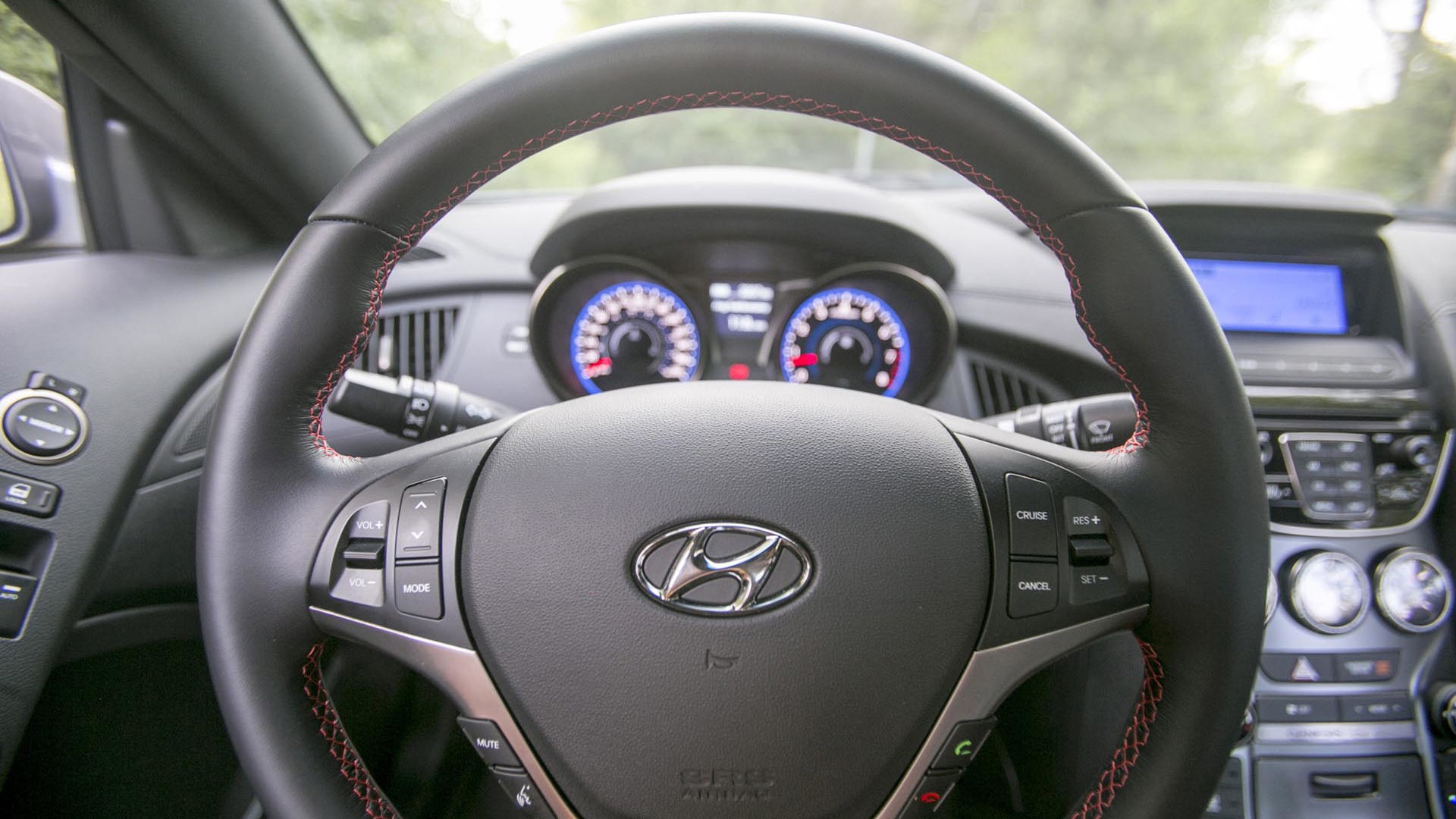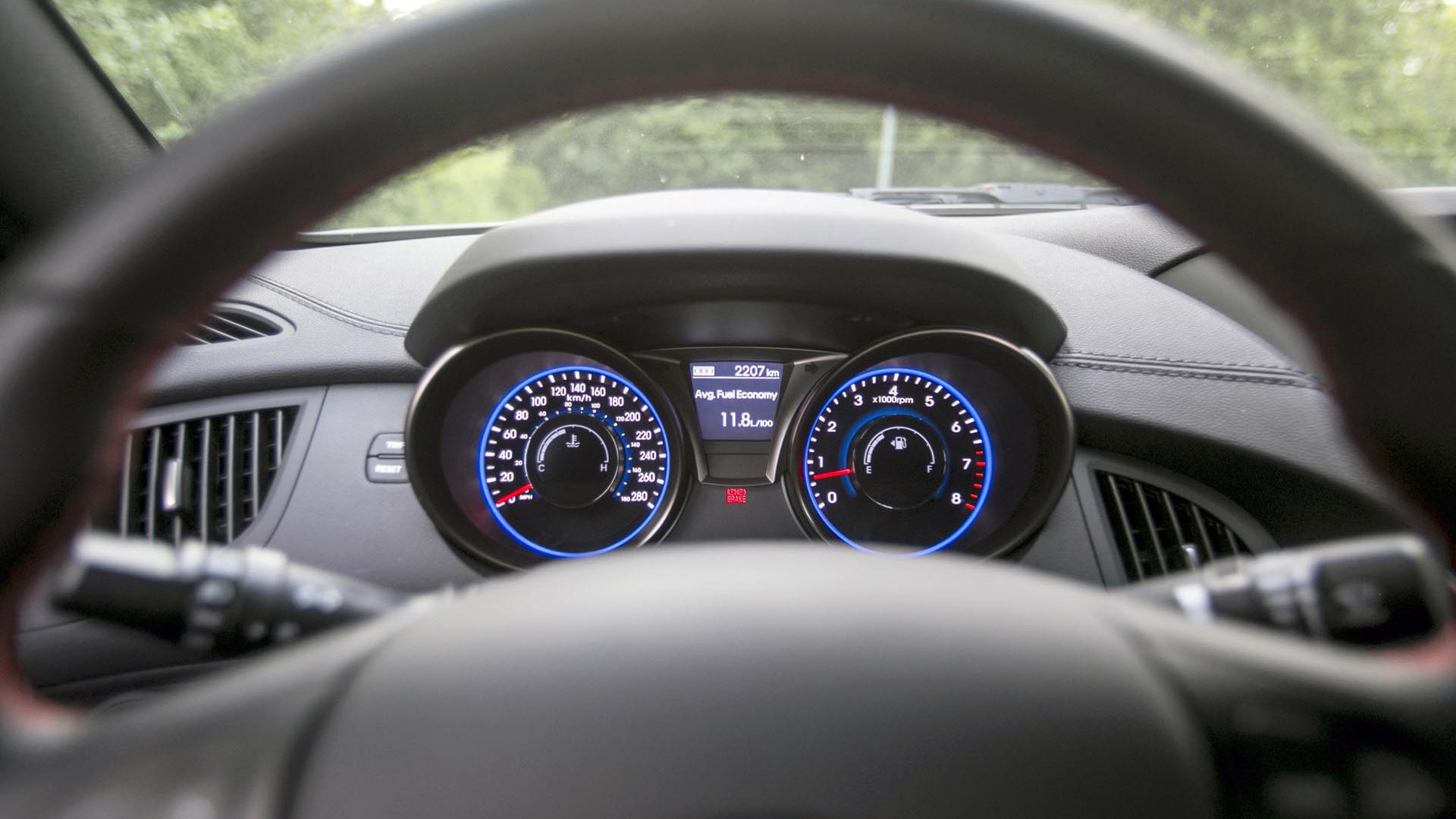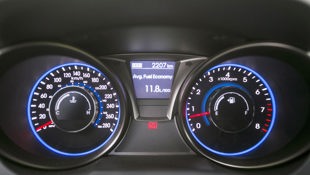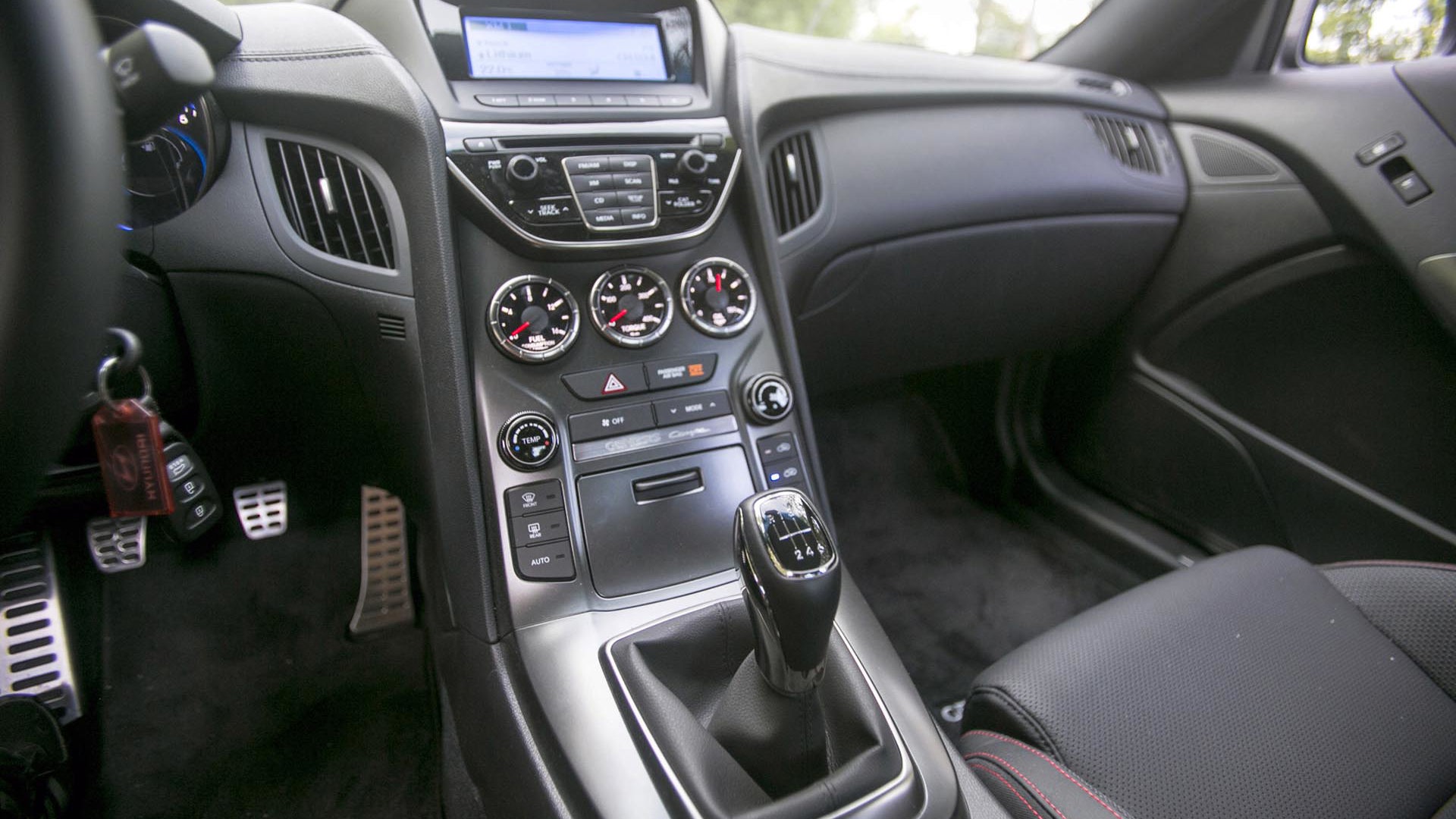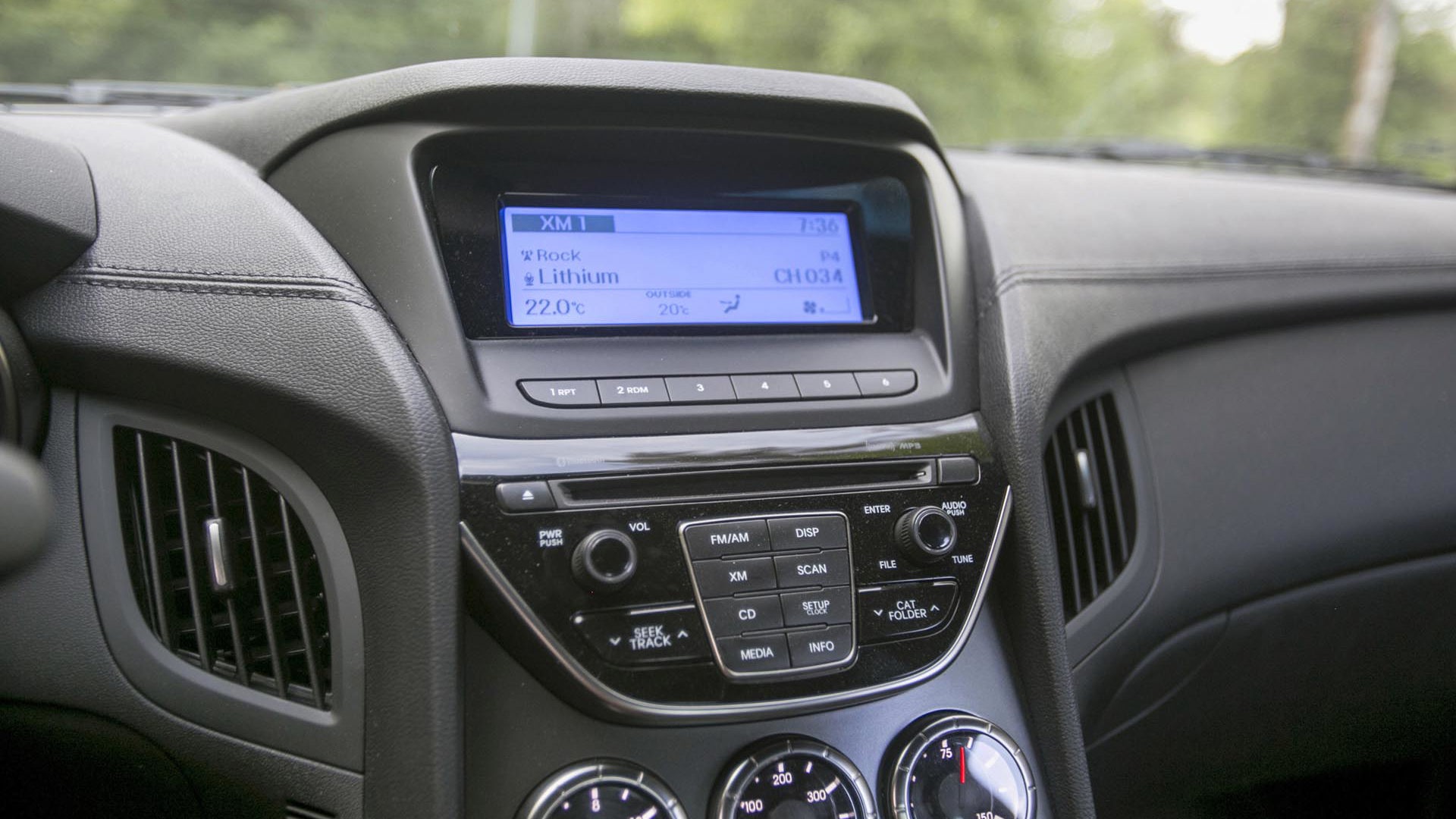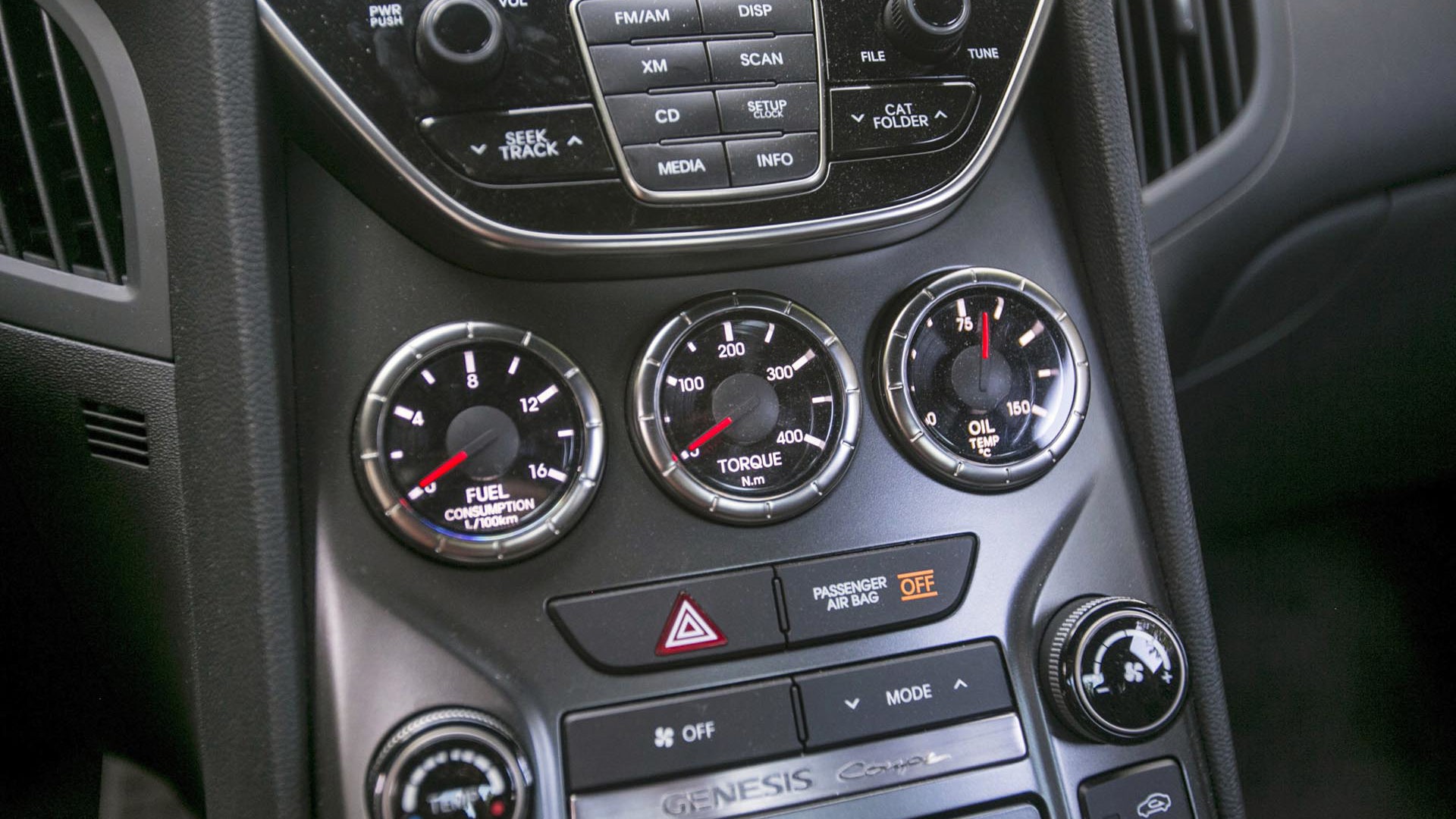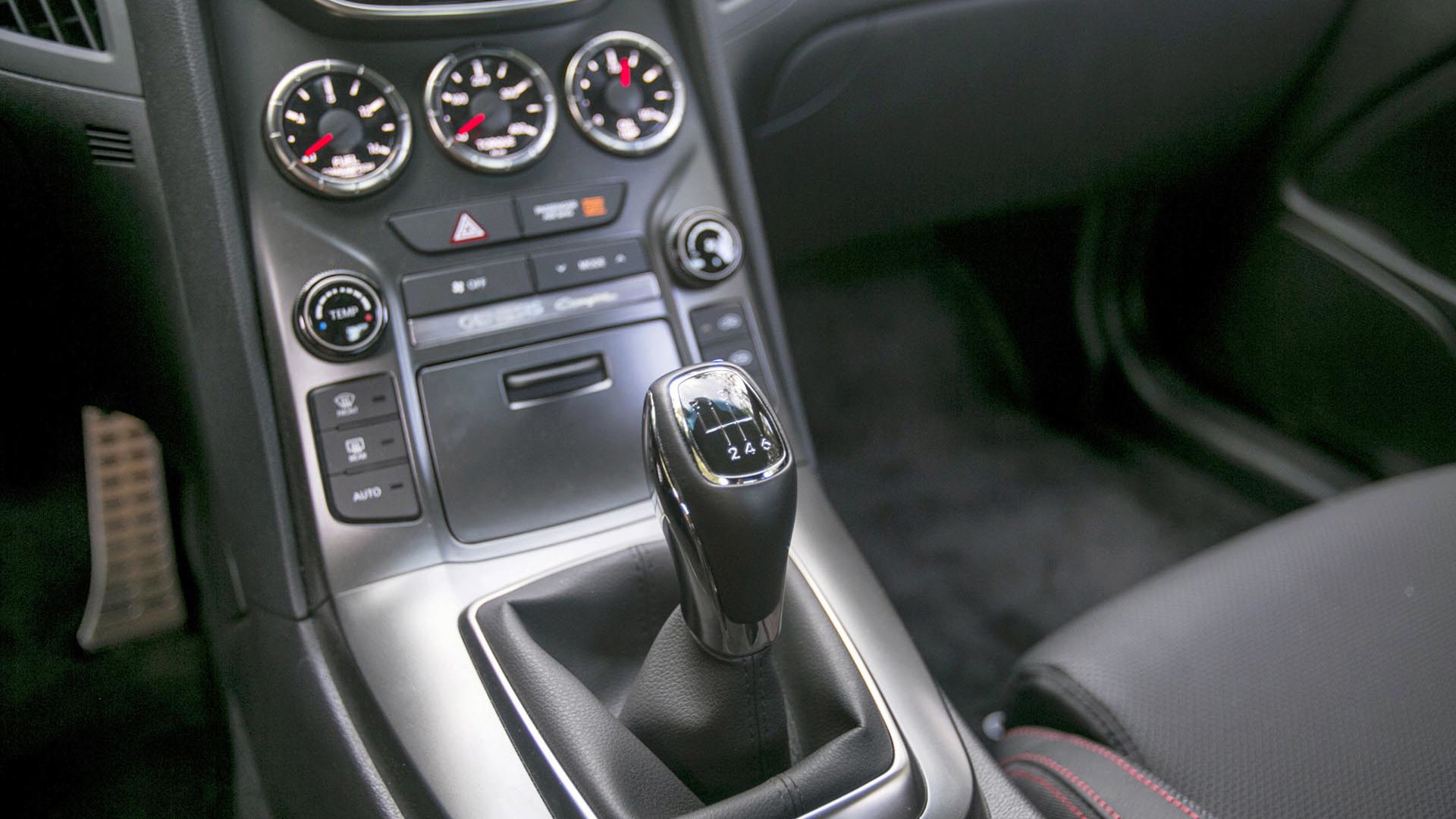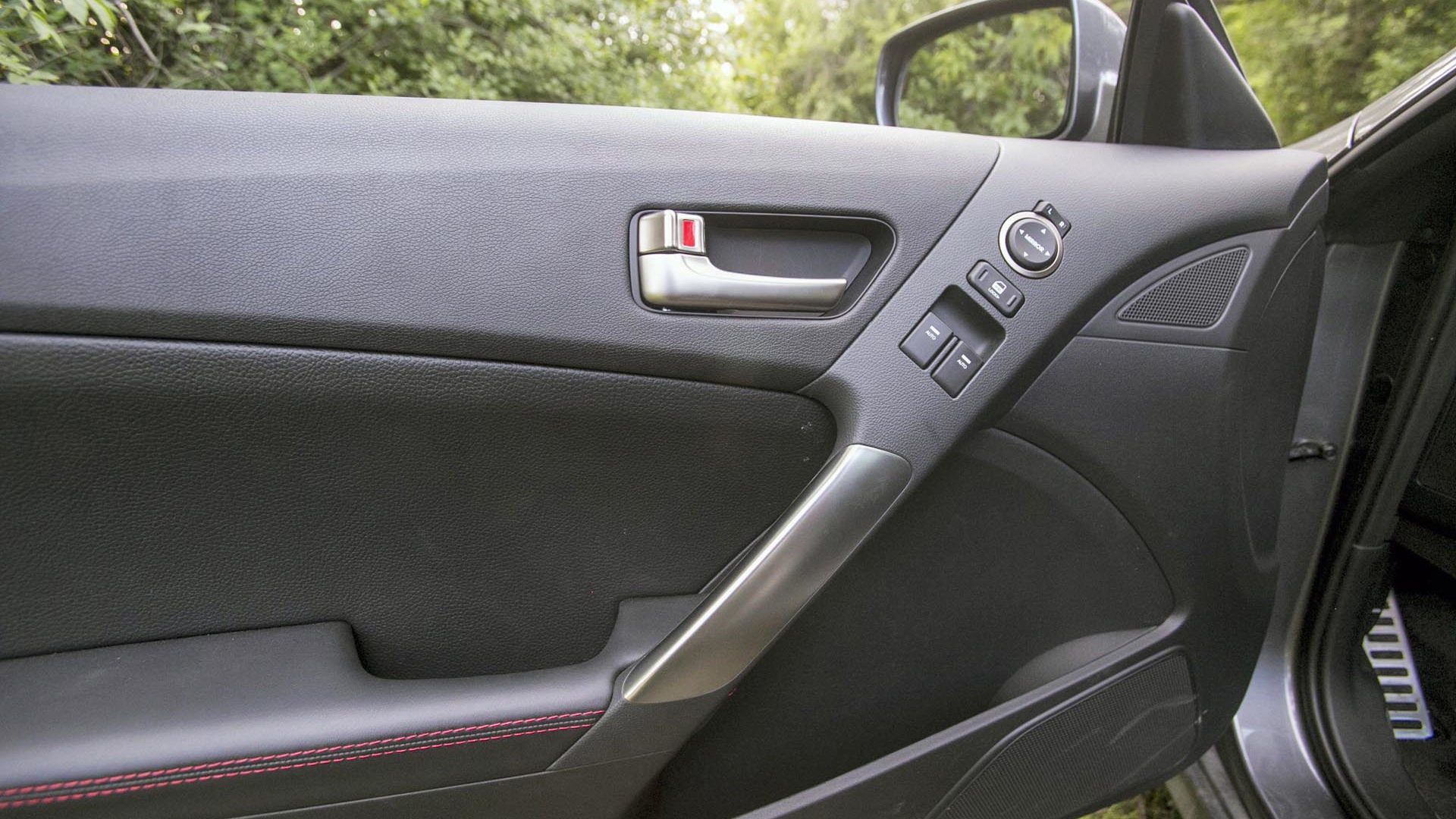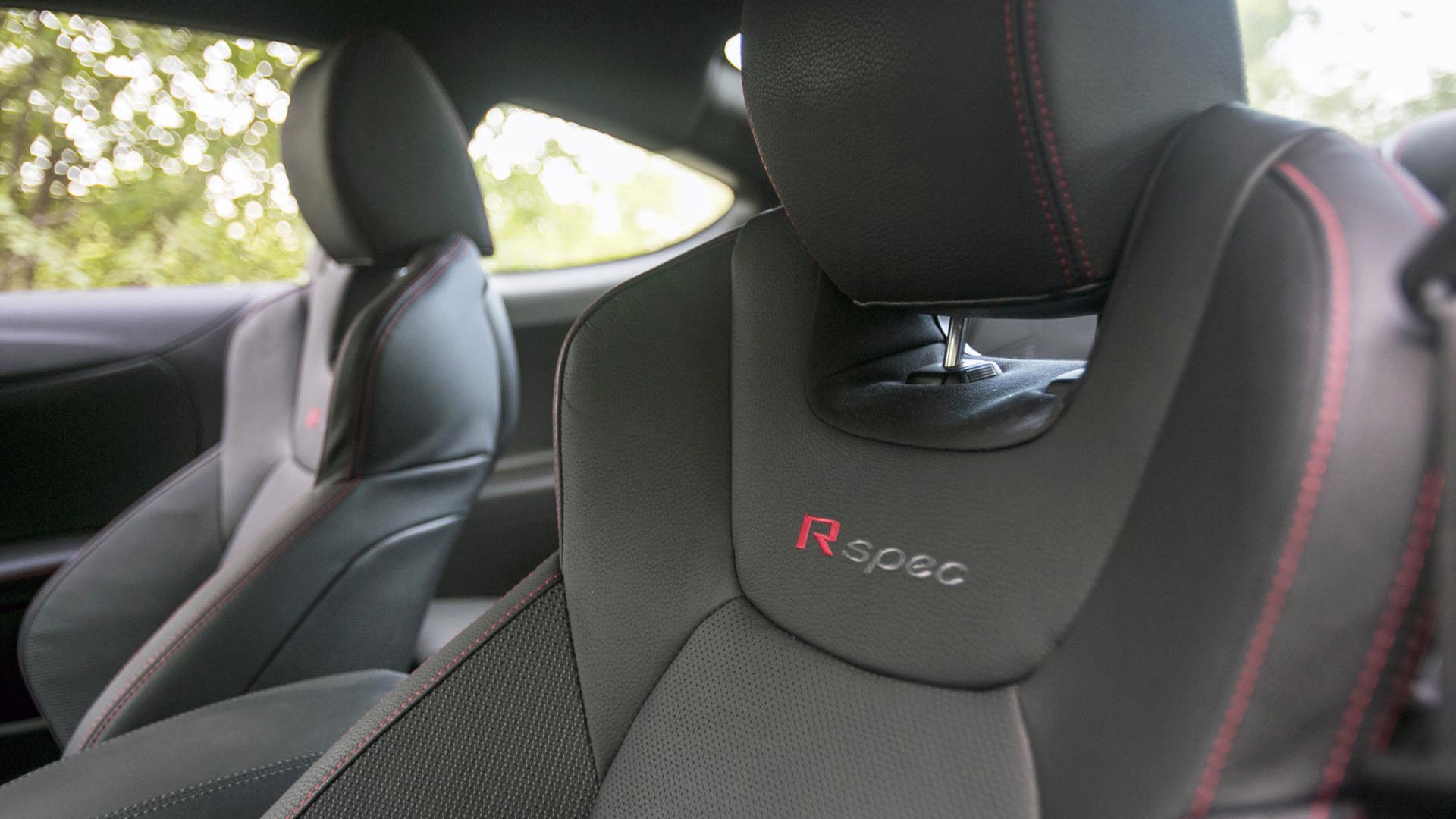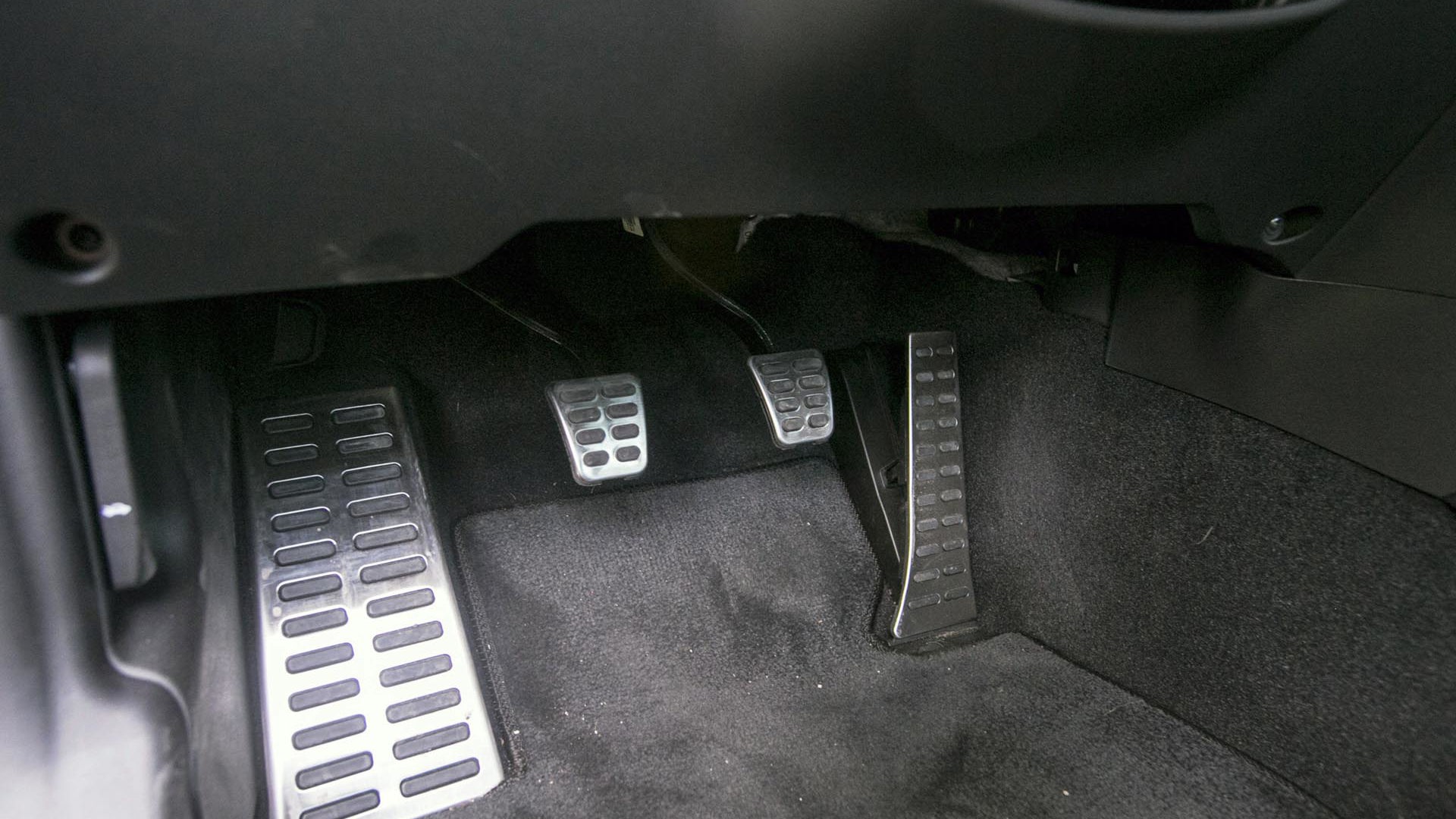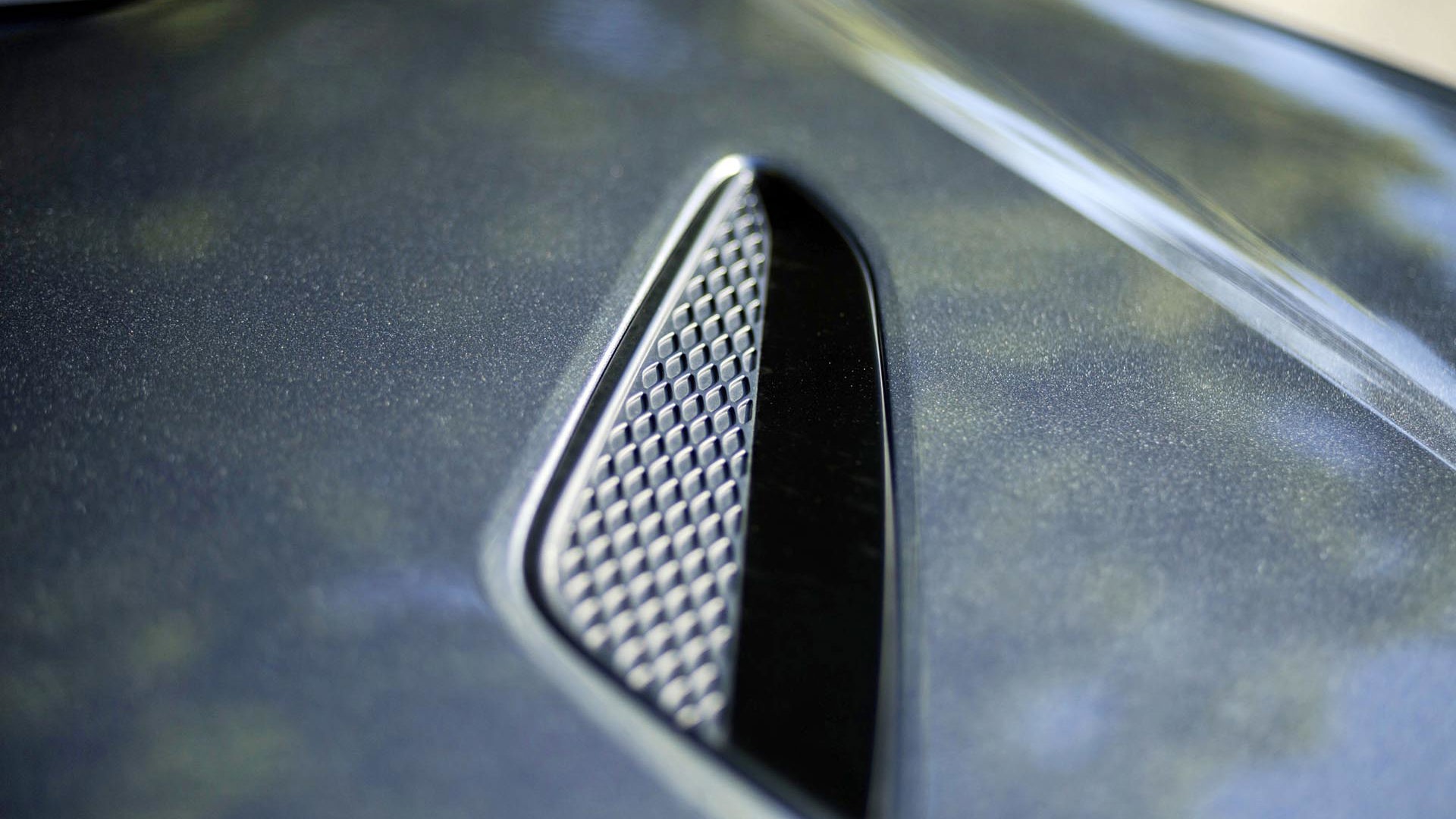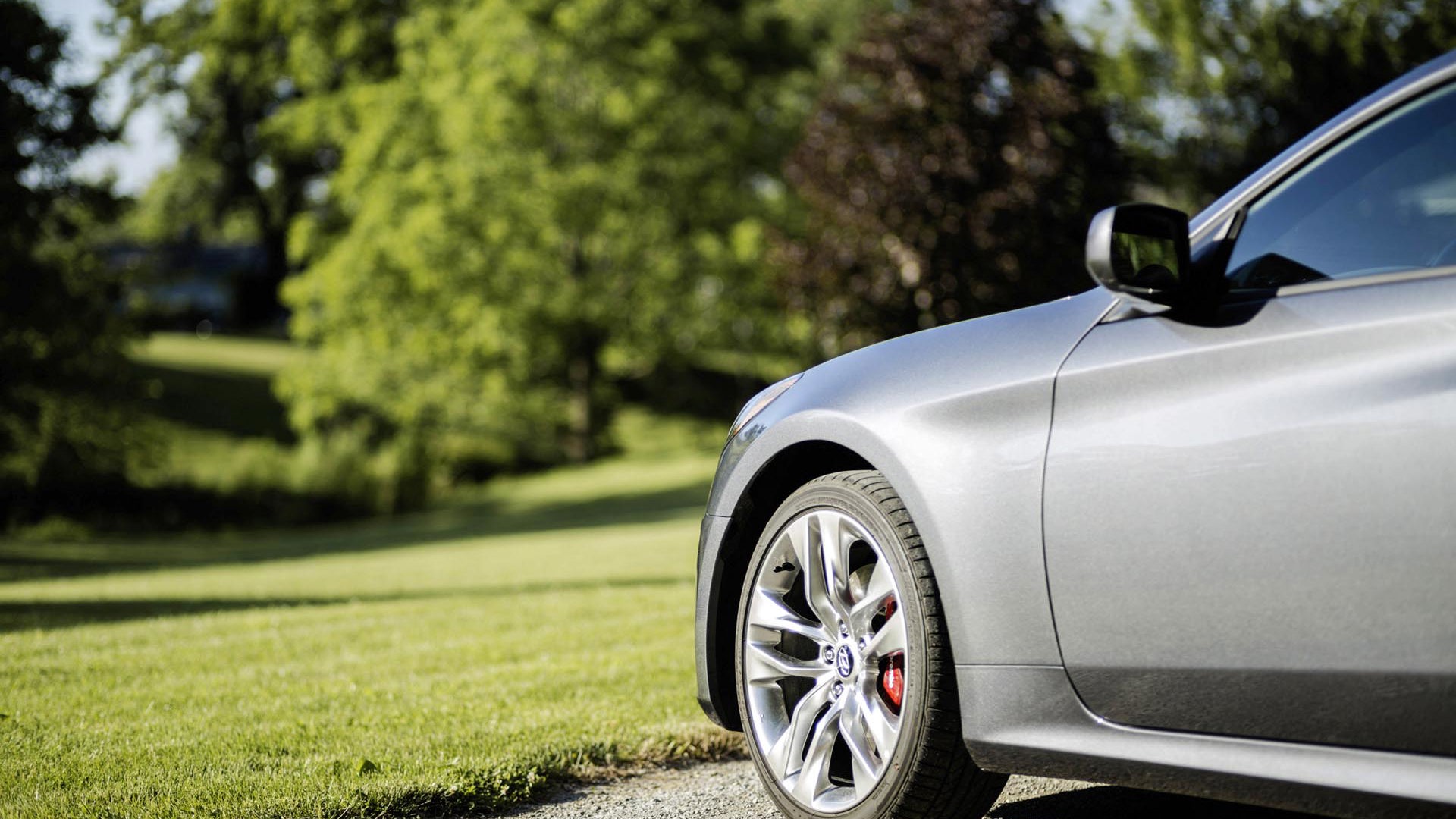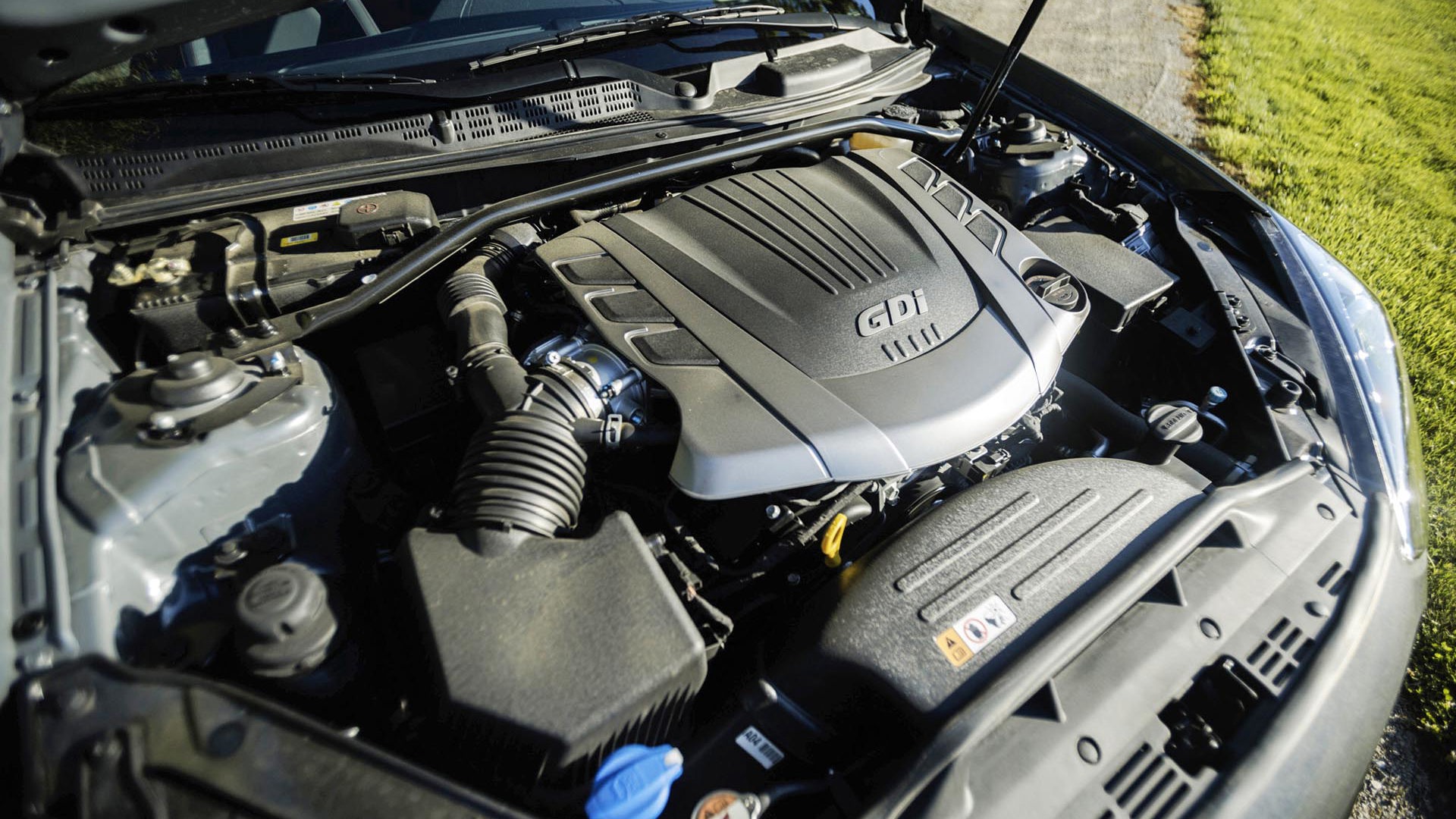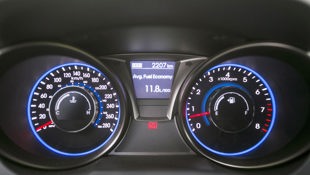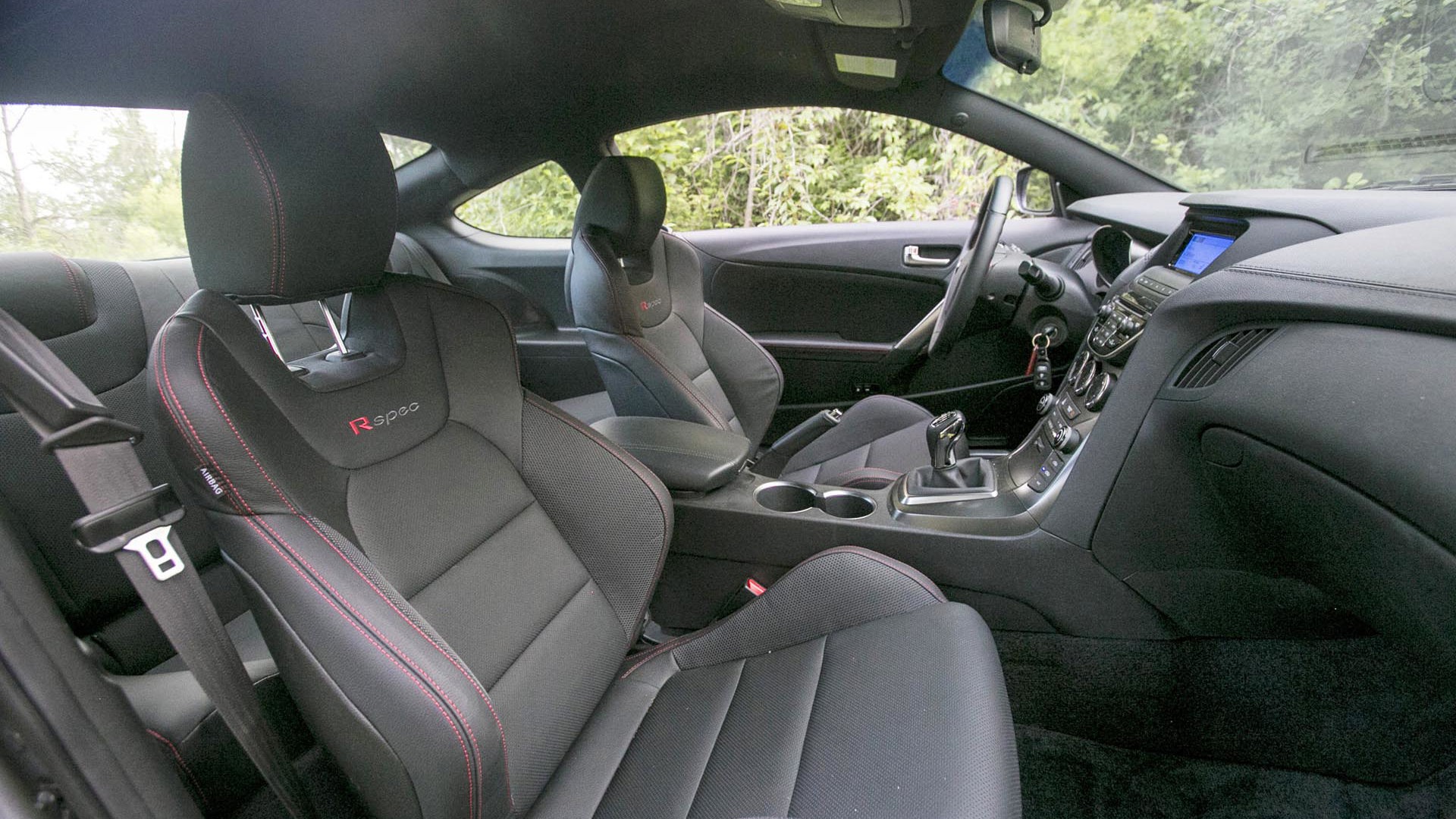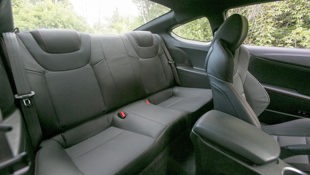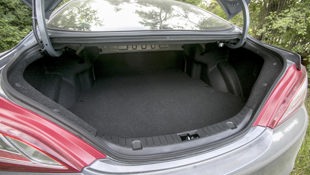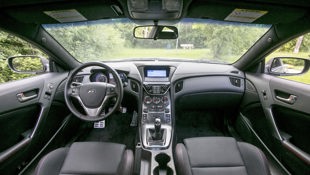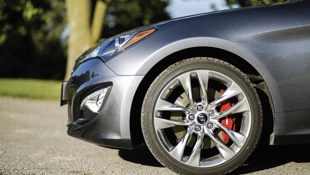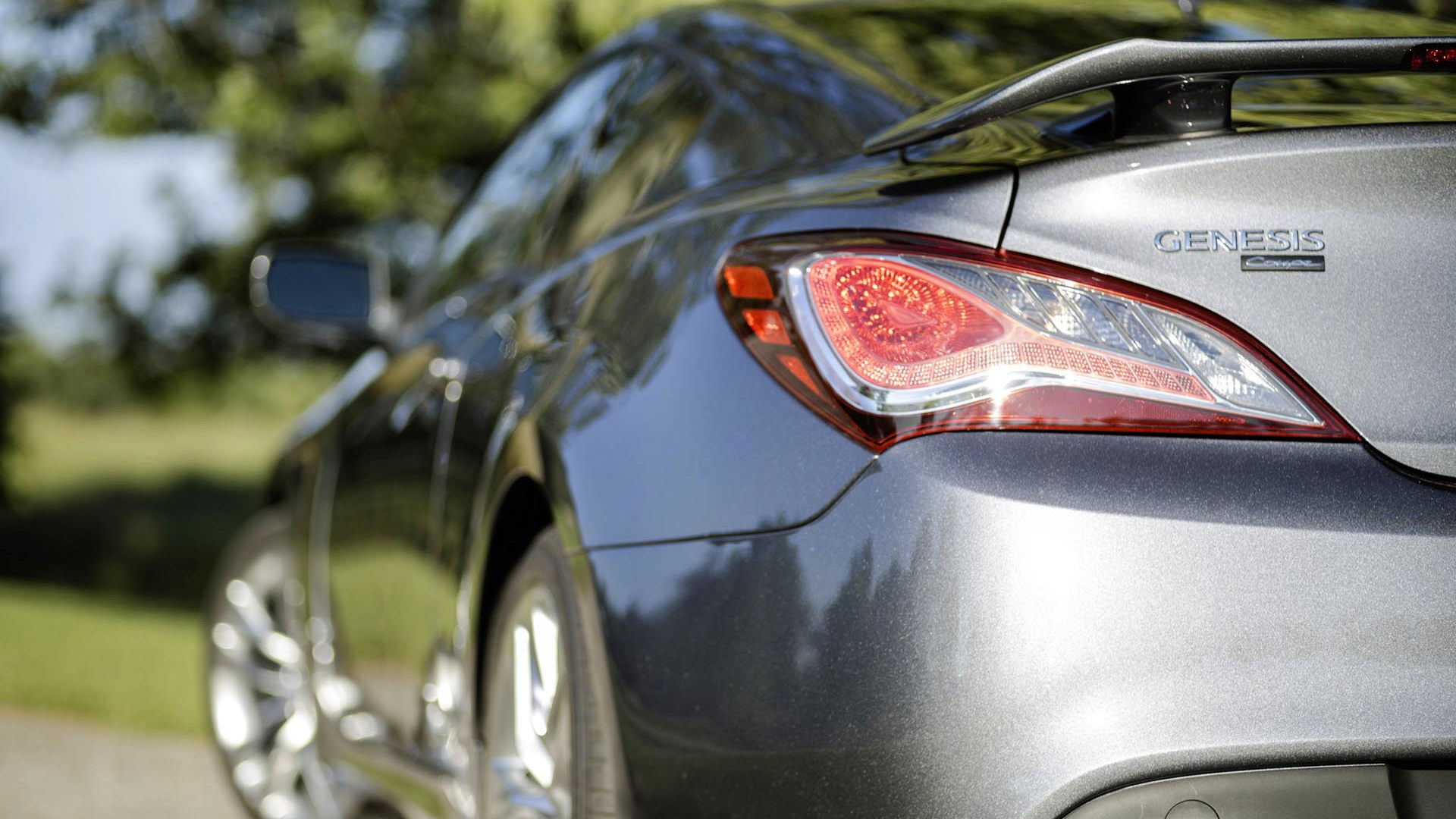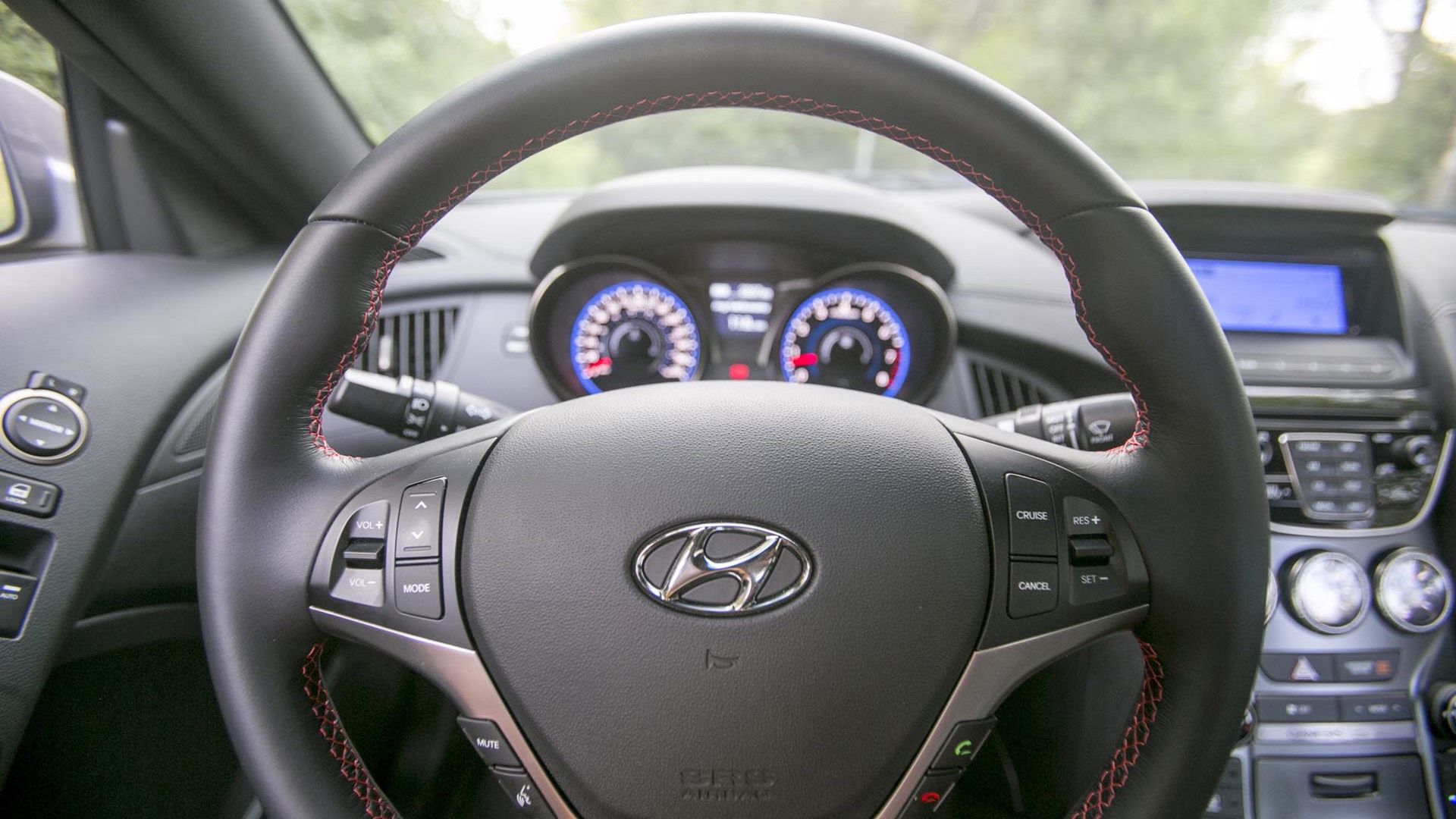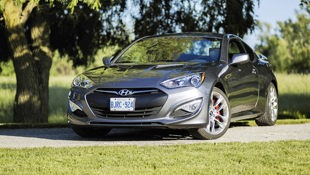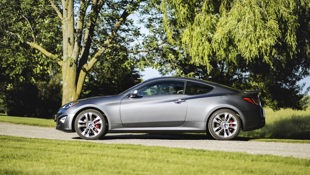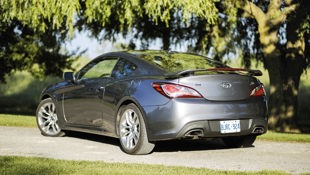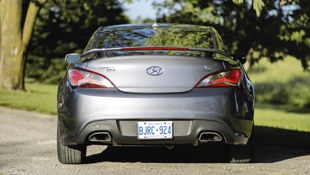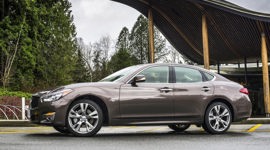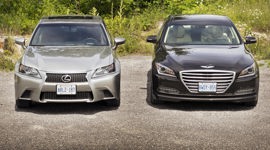 AutoTrader SCORE
AutoTrader SCORE
-
PERFORMANCE8/10
-
EXTERIOR STYLING6/10
-
INTERIOR8/10
-
COMFORT7/10
-
FUEL ECONOMY5/10
When Hyundai launched the Genesis Coupe in 2009 as a 2010 model, it immediately put the Korean automaker, known for its economical appliance type vehicles, on the radar of rear-wheel-drive sports-car enthusiasts for the first time. With the option of buying the Genesis Coupe equipped with a turbocharged 2.0L four-cylinder or a 3.8L naturally aspirated V6, the rear-drive coupe ticked off many of the boxes for a budget bona fide sports car.
As the owner of a daily-driven, track-prepped 2010 Genesis Coupe GT, hopping into the 2015 3.8L R-Spec felt like stepping into your neighbour’s freshly renovated condo.
Styling-wise, the Genesis Coupe has aggressive body lines, a wide stance, an aggressive shark-like front end, and dual-tip dual exhausts. It's unmistakably a car with sporty designs in mind. As far as the exterior goes, not much has changed since the 2013 update. While it doesn't look bad at all, I don't find the Genesis Coupe to be exciting looking. In fact, I find the front end of the 2010-2012 models far more attractive as they have more character and the sharper front end looks far more aggressive. I'm hoping that the next generation Genesis can find its own identity with its looks, rather than build another coupe that just kind of blends in with the sea of other cars, sports cars or not. Nothing about the Genesis Coupe screams Hyundai either, whether that's what Hyundai intended or not, hopefully the next one will forge its own identity in the market as the Genesis Coupe has potential for being a great car in the years to come, and it's important that Hyundai establishes the Genesis as its sports car brand early on.
When it was released in 2010, Genesis Coupe was available with no less than eight trim levels and two engine choices - Base model 2.0L, Premium 2.0L, R-Spec 2.0L, Grand Touring (GT) 2.0L, Base 3.8L, Base with Navi 3.8L, R-Spec 3.8L (for 2011) and Grand Touring (GT) 3.8L. The GT models were known as the Track models outside of Canada. Starting at $25,000 and topping out at close to $40,000, there was a Genesis Coupe to suit everyone’s budget. The 2.0L, with its low entry price, proved to be very popular with the tuner crowd as turbocharged vehicles tend to offer up a great bang for your buck when it comes to aftermarket upgrades.
For 2015, gone is the option of the 2.0L turbo and since the 2013 update, the 3.8L V6 now makes 348 hp and 295 lb-ft of torque. The Genesis Coupe is available in the three trim levels, the R-Spec, Premium and Grand Touring (GT).
As the owner of a daily-driven, track-prepped 2010 Genesis Coupe GT, hopping into the 2015 3.8L R-Spec felt like stepping into your neighbour’s freshly renovated condo. Upon stepping into the cabin, I was immediately struck with a sense of familiarity combined with no small amount of envy for the updated cabin’s materials and control layout (compared to my 2010).
My tester was an R-Spec and as you’ve probably gathered from the “R”, the R-Spec is the sportiest of the three trim levels. It’s a stripped down (well, stripped down as much as a 1,600-kg car gets) version of the Genesis Coupe without the bells and whistles of the Premium and GT models. You won’t find a back-up camera, navigation, HID headlights, heated power seats, a 10-speaker sound system with amplifier and subwoofer, a sunroof, proximity keyless entry or push-button start.
What you will find are some heavily bolstered sport cloth seats, Brembo four-piston calipers up front with 340 mm rotors and two-piston calipers clamping onto 330 mm rotors out back, thicker front and rear anti-roll bars, stiffer springs, and most of all a highly capable Torsen limited slip differential to put down maximum power to the ground while enabling you to control your vehicle at its limits. The R-Spec fits into an interesting category as it’s technically the base model Genesis Coupe with better performance hardware than the slightly more expensive Premium model but none of the bells and whistles for comfort and features. If you want a combination of performance and features, the GT is available as the flagship model for significantly more money. For the purposes of this review, I’m focusing on the R-Spec - the stripped-down performance model that’s affordable to most people with a full-time job.
Firing up the 3.8L V6 is a rather rewarding experience. With so many cars these days, when you turn the key or push the button, it’s similar to switching any other appliance on. With the Genesis Coupe 3.8L, a quick flick of the key to start the car, rewards you with a gnarly roar that settles into a smooth purr at idle.
One of my biggest complaints about the previous Genesis Coupes lies with the clutch pedal feel, engagement and action. For myself, there isn’t just one thing that makes a good sports car. Several factors key into it and one of the big ones is the transmission and clutch. After all, think about just how many times in a trip you’ll push that pedal down and slide the shifter into gear. Makes you think, huh? Hyundai finally addresses this glaring issue and clutch pedal feel is remarkably improved over all previous years and both engine trims.
In previous years, clutch engagement was vague and severely unsatisfying. The friction point was more of a suggestion as opposed to an actual point of engagement. Sliding the Genesis Coupe into gear required far too much effort and it was, by far, the clunkiest gearbox I have ever driven, let alone in a RWD sports car. Hyundai have managed to sort this out for 2015 and while the gearbox and clutch still aren’t the slickest around (I’ll leave that to the Toyobarus), it’s a night and day improvement over previous years.
Taking advantage of the 348 hp and 295 lb-ft of torque from the 3.8L V6 and giving the Genesis Coupe a healthy dollop of throttle while engaging the newly improved clutch propelled me forward with some very satisfying thrust and controlled wheelspin that I could feel in my chest. The exhaust note climbs in ferocity with the rpms and speed, and unlike many other cars, the higher up I take the Coupe, the better it sounded. Sliding the shifter into second gear and flooring the pedal again doubles down on the initial fun and I quickly realized that I could be exceeding the speed limit by a serious amount. Backing off the throttle, I’m rewarded with a slight burble from the growly exhaust as I shift into third to settle down to cruising mode.
Testing the six-speaker stereo system out, I quickly decided that I prefer the 10-speaker system (with subwoofer) in my own Genesis, but with that being said, the standard six-speaker unit is more than acceptable, though some may say the interface is a little dated. For myself, I think the interface is fantastic. The audio system is all buttons and knobs, none of this pesky touchscreen stuff that’s worthy of a “Distracted Driving” charge in too many cars nowadays. Bluetooth phone pairing is a straightforward affair and I had no issues with streaming music from my iPhone for the entire week and that’s all I require from a car’s audio system, personally.
More on autoTRADER.ca: Test Drive: 2014 Honda Accord Coupe V6
Controls are well laid out and I found myself quickly able to acquaint myself with them well enough to operate the important bits without looking. The interior is much quieter than earlier models and beyond the odd creak or rattle over the more serious of offensive road surfaces, the cabin remained quiet and undisturbed.
For my 5’8” 140-lb frame, the R-Spec bolstered sport seats are perfectly supportive. Bolstered enough to hold me steady through any corner at street speeds, unlike the other seats on offer for the Genesis but not so hardcore that it makes it a hassle to climb in and out of the coupe. And they look great, to boot!
The centre console and armrest provides a fairly deep and large pocket to store anything most drivers would need. The armrest is also an armrest you can actually use. Cupholders are adequately sized and placed well enough. The steering wheel feels good in my hands and to my eye, I like the simple look of it combined with the red contrast stitching. The aluminum pedals are well spaced making hard braking, heel and toeing and two-foot braking a very easy affair without any fuss. they’re very well placed, and they look fantastic.
The gauge cluster is easy to read and decipher at a quick glance. The single LCD display in the cluster shows you your trip information, average fuel economy, and your phone and media information if you so desire. Again, all very easy to click through and decipher at a glance. The three (what looks to be) 60 mm gauges on the centre stack look like something an aftermarket tuner would put in a car and admittedly, the tuner in me loves the idea of it, regardless of the fact that it’s near impossible to accurately and safely read the fuel consumption gauge or your “torque gauge” at a glance. The oil temp gauge will be very useful for those of you who will track your cars. If the factory gauges aren't to your liking, simply replace the three gauges with aftermarket units.
As far as sports cars go, the Genesis Coupe rides well. It doesn’t have the same near-luxury feel as BMW 335i, nor does it cost nearly as much. Despite the fact Hyundai calls the suspension “sport-tuned”, the coupe rides fairly soft for a sports car and soaks up the bumps and uneven surfaces of Toronto’s forever-under-construction roads and highways. Turn-in is a sharp affair and the Genesis Coupe can hide its weight pretty well at lower speeds, and it downright feels surprisingly nimble at times. At higher speed corners, say, a high speed on-ramp merging onto the highway, the softish suspension shows some of its downfalls. What the Coupe gains in comfort, it loses in higher-speed capabilities. There is more body roll than one would want to feel at higher speeds and the Coupe seems much crashier over the uneven onramp surface.
In my personal Genesis Coupe, updating the factory suspension with a quality set of coilover suspension, transformed the car’s handling characteristics and abilities into a much more capable sports machine, capable of some serious fun at any track day or your favourite backroads. Please don’t get me wrong, the factory suspension in the Coupe is still fairly aggressive and stiff feeling. Much more so than the suspension you’d find on something like an Elantra, but as mentioned before, despite its stiff characteristics it’s still quite comfortable to drive around in.
The steering feel on the Genesis Coupe is decent. It takes a little bit of effort to turn the wheel in the Coupe, giving the driver that sporty feel; it’s nicely weighted on centre and the force required stays consistent for the most part. When steering back and forth very quickly, it almost feels like the hydraulic system is playing “catch up” with me. It loses a little bit of consistency in that scenario but that’s a place where few buyers will ever venture; overall, it’s decent. The steering wheel is rather communicative of how much traction is available to you at all times. In fact, I’d say it’s one of the better steering systems out there right now in its affordable sports car class. There are no steering modes for me to click through, there’s only the one and it’s rather sporty, and I’m totally okay with that.
One thing to note: The Genesis Coupe can be run on 87 octane gas, safely. The ECU will do its magic and voodoo to retard timing, delay throttle response and other things to keep your engine safe when it detects lower octane. This results in reduced horsepower, but you're not going to do damage to your engine. I had the misfortune to unknowingly pick up the Genesis Coupe filled up with a tank of 87. It wasn't until I refilled the tank with a good 91 octane that I had realized the previous tank was 87 octane. The Genesis Coupe felt like it had magically shed 200 pounds or more and went through a custom ECU tune. I wouldn't be surprised to hear the Genesis Coupe loses 15 or more hp when filled with 87 octane.
I would highly recommend that if you're buying this car, you stick with 91 octane for the full driving experience. Then again, if you're only buying this car for its looks, then, well, 87 it away and have peace of mind that you won't blow your engine up!
The Genesis Coupe, Hyundai’s first foray into the sports car world, has been updated constantly since the first year of its release. Every year, it gets slightly better. The 2015 model is leaps and bounds of an improvement over the 2010. At first glance and comparison of spec sheets, it doesn’t look like too much of a difference, but this is a perfect example of why simply reading spec sheets and press releases isn’t enough. Being in the rare position to drive the 2010 and the 2015 models back to back for extended periods of time, I can see the quality of materials and build quality of 2015 car’s interior is in another world compared to the 2010. The transmission and clutch system feels like it came in a different car altogether. The culmination of all the improvements made from 2010 to 2015 model years makes the 2015 Genesis Coupe a bona fide sports car worthy of any enthusiast’s consideration when contemplating a sub-$35K sports car. While it’s no BMW 335i, it never pretends to be. The R-Spec is unapologetically bare bones but fun as hell to whip around and bang through the gears. If you want to initiate some all-out hooliganism with a wicked exhaust note, the Genesis Coupe will do that for you on command, the same way it will behave like a confident, quiet, solid highway cruiser with ample seating room and comfort for the two front seat passengers when you want it to.
As far as fuel economy goes, the 2015 Genesis Coupe is rated at 14.4 L/100 km in the city, 9.9 L/100 km on the highway and 12.4 L/100 km combined. I saw an average of around 13.5 L/100 km with my heavy foot. (That's still noticeably better than my 14.5 L/100 km average in my 2010 2.0L Genesis Coupe.)
If the R-Spec is too bare bones for you, there’s always the noticeably heavier Grand Touring (GT) model. It has all the performance goodies and all the creature comforts. For my money, I would skip over the Premium Edition entirely, and go with either the wonderfully elemental R-Spec or the GT model.
| Warranty: 4 years/80,000 km; 4 years/80,000 km powertrain; 12 years/unlimited distance corrosion perforation; 4 years/unlimited distance 24-hour roadside assistance Competitors: |
| Model Tested | 2015 Hyundai Genesis Coupe R-Spec |
|---|---|
| Base Price | $27,999 (after $1,500 factory discount) |
| A/C Tax | $100 |
| Destination Fee | $1,695 |
| Price as Tested | $29,794 |
|
Optional Equipment
None
|
|
